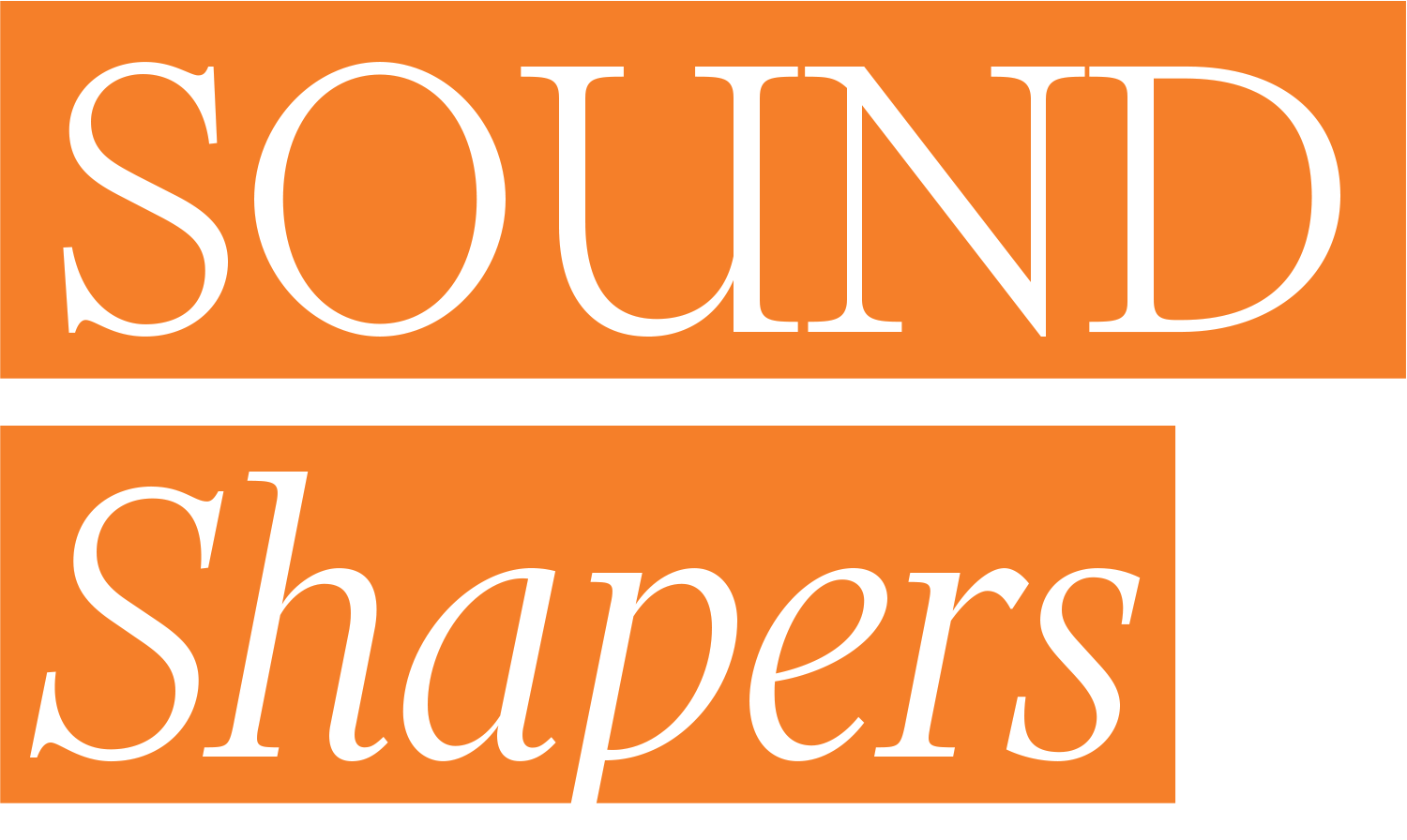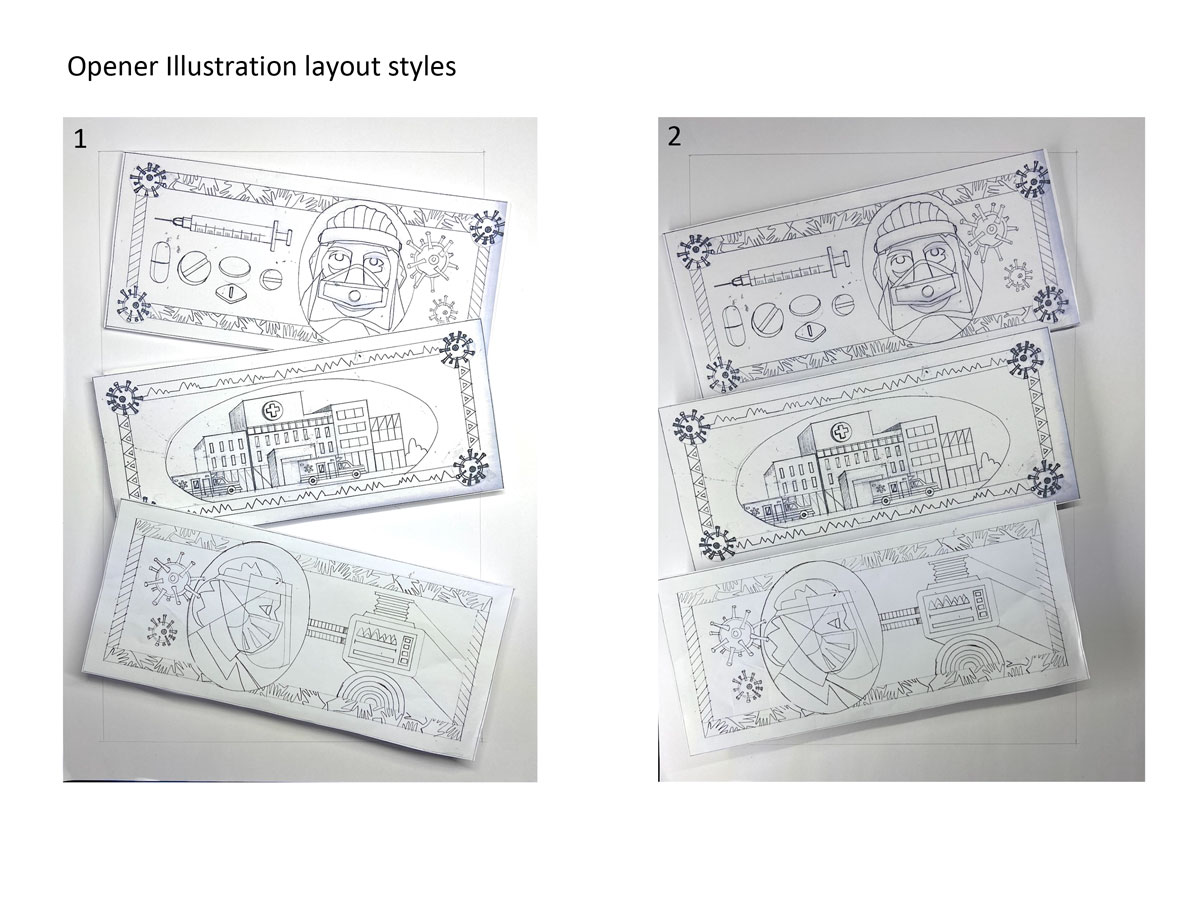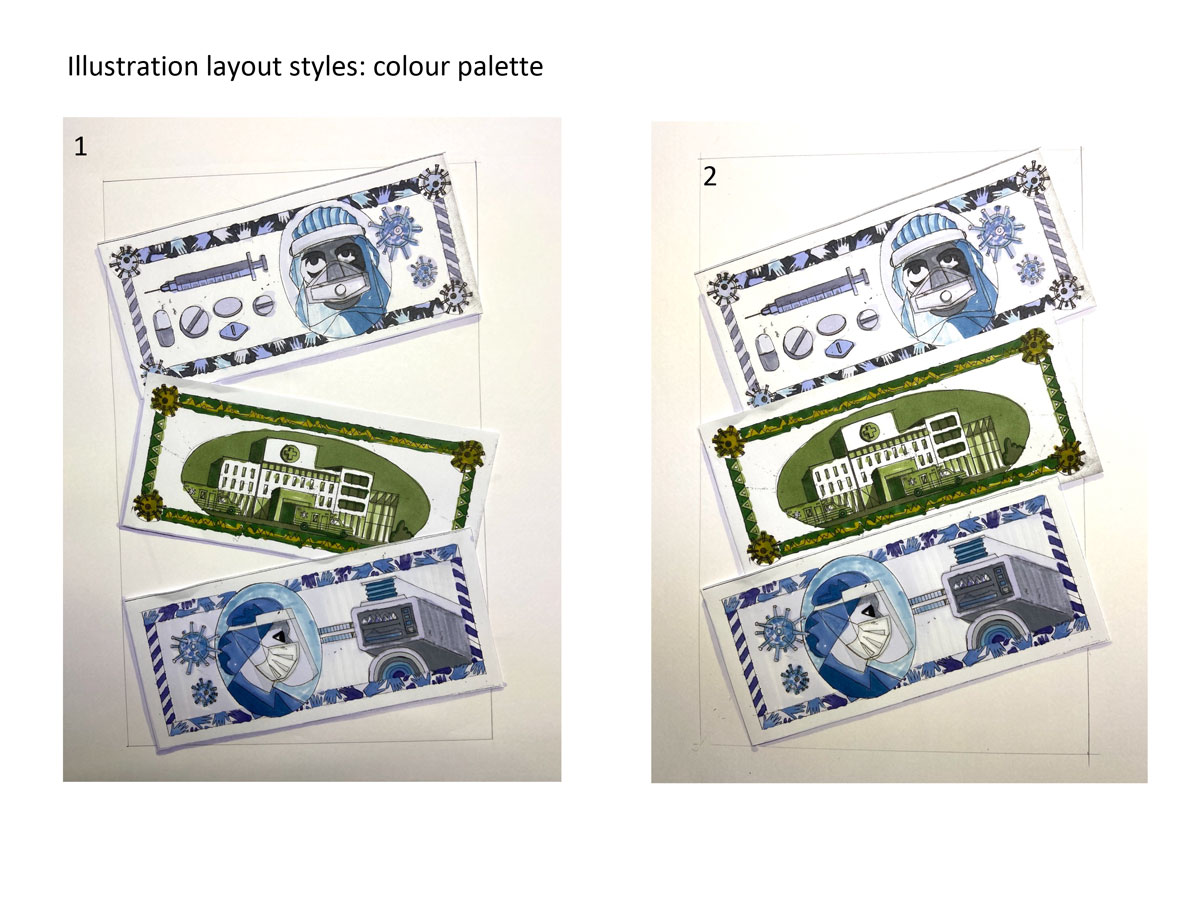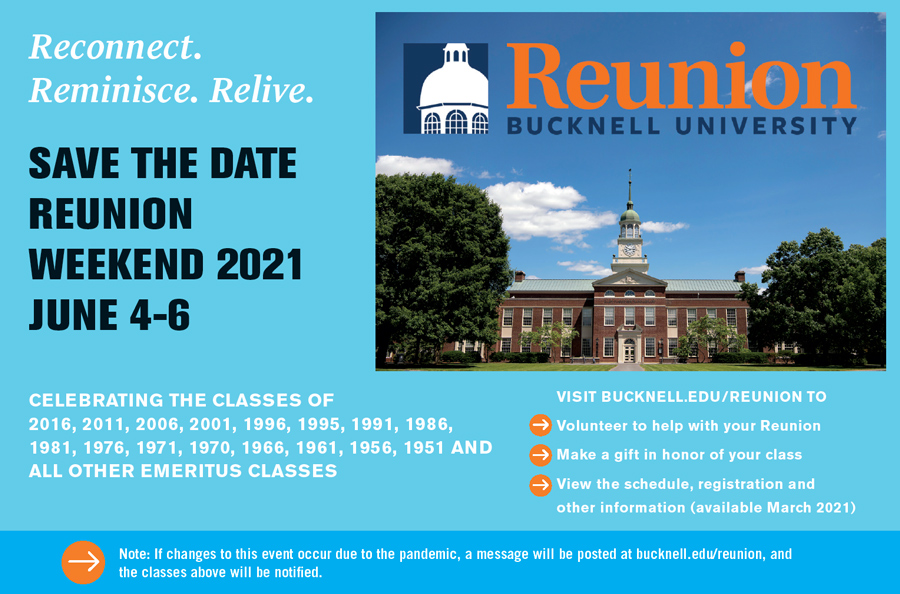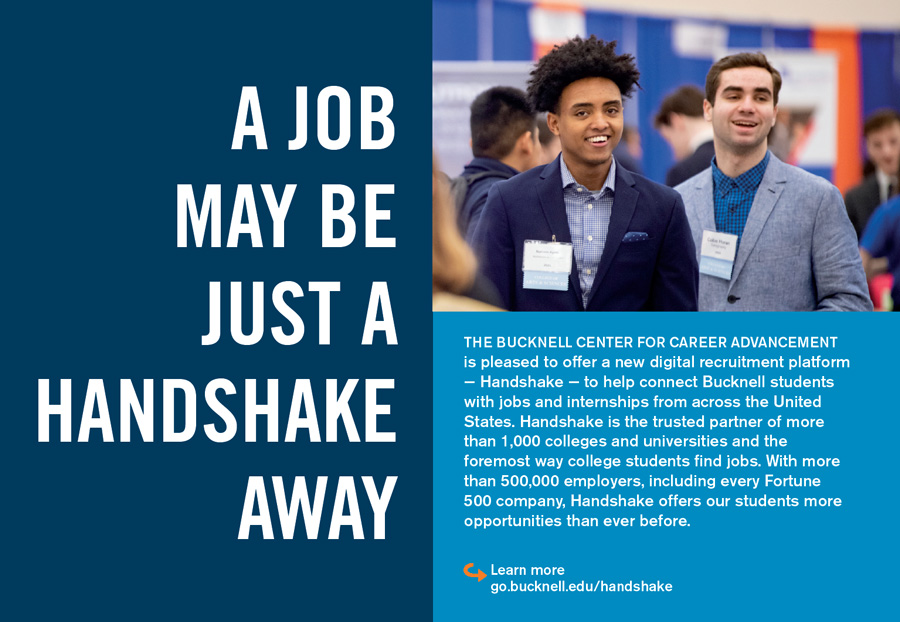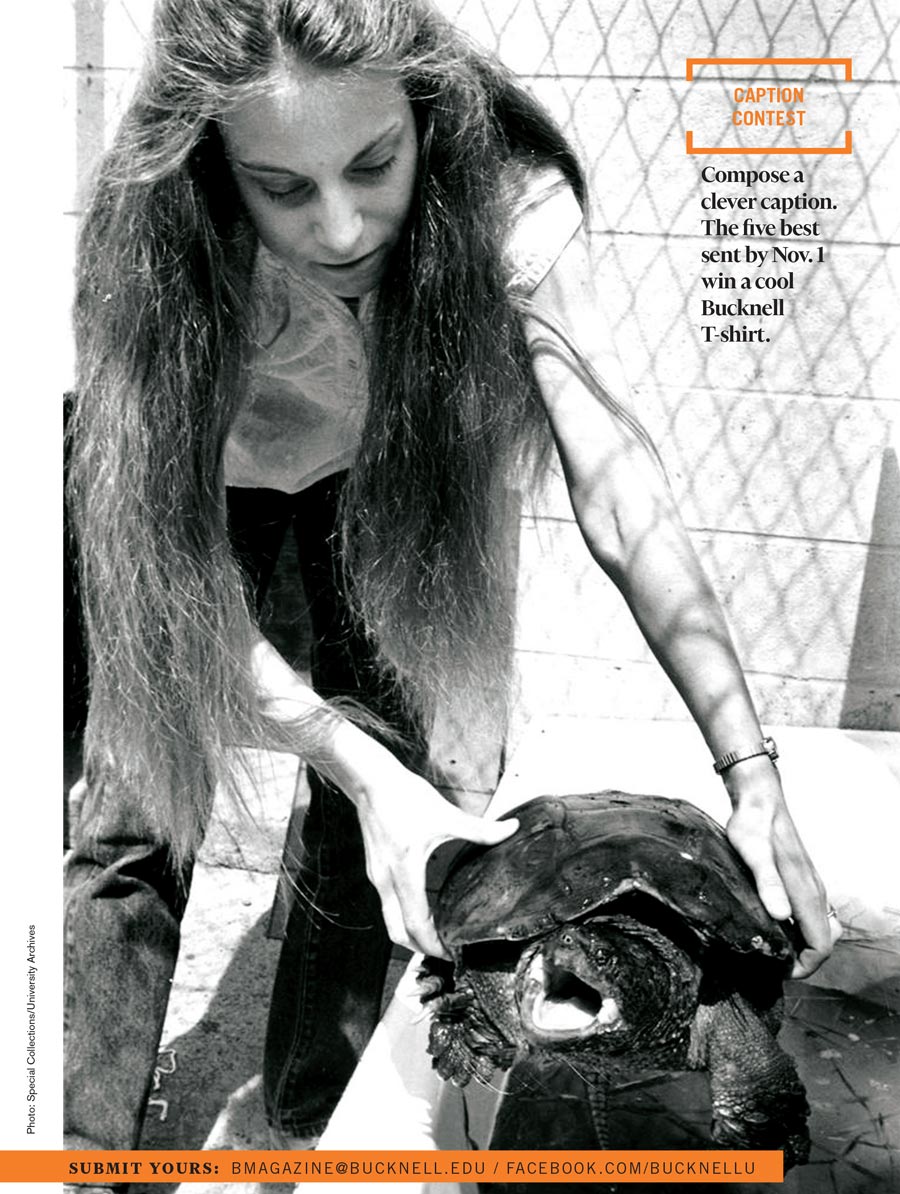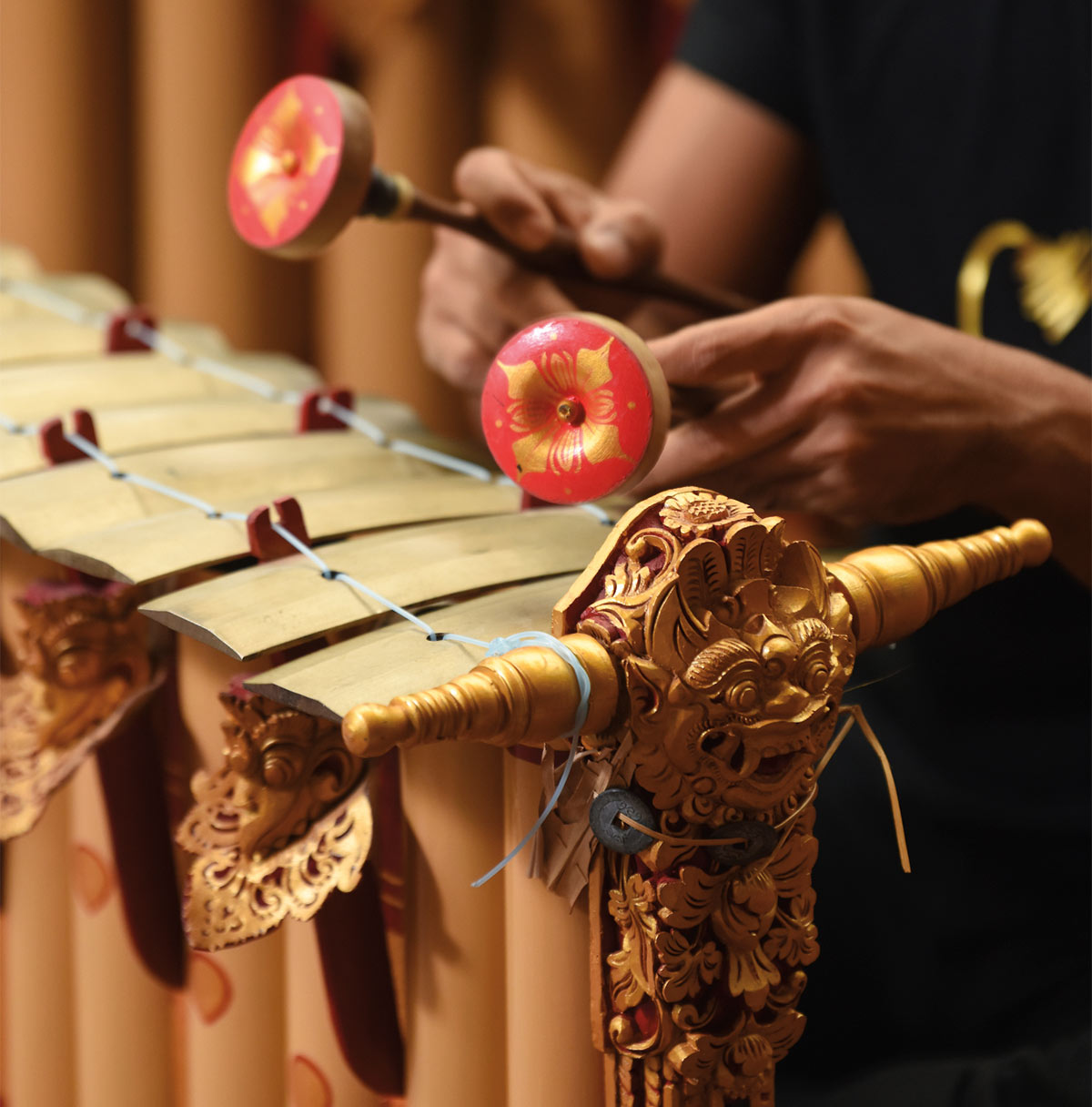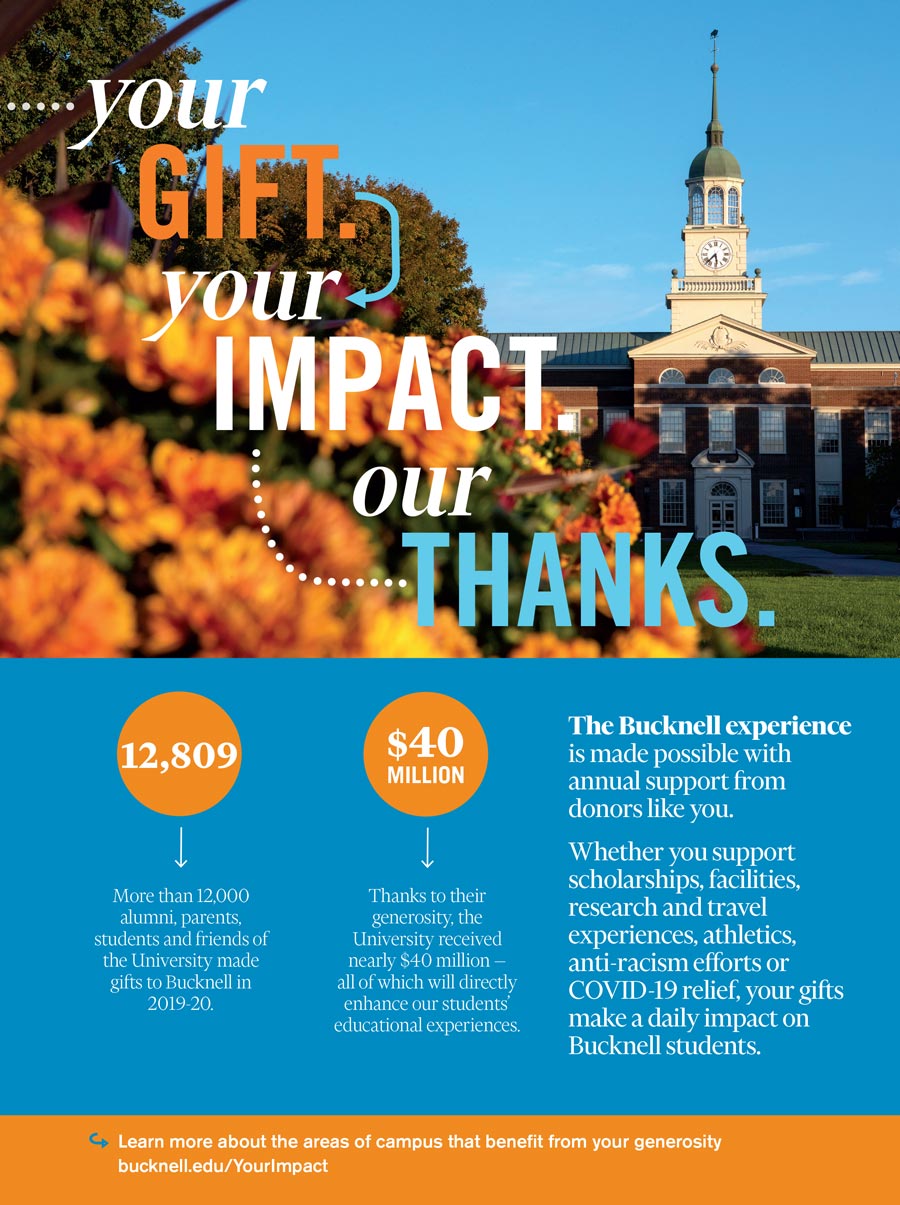Green and gold compete for autumnal attention as the seasons shift.
Green and gold compete for autumnal attention as the seasons shift.
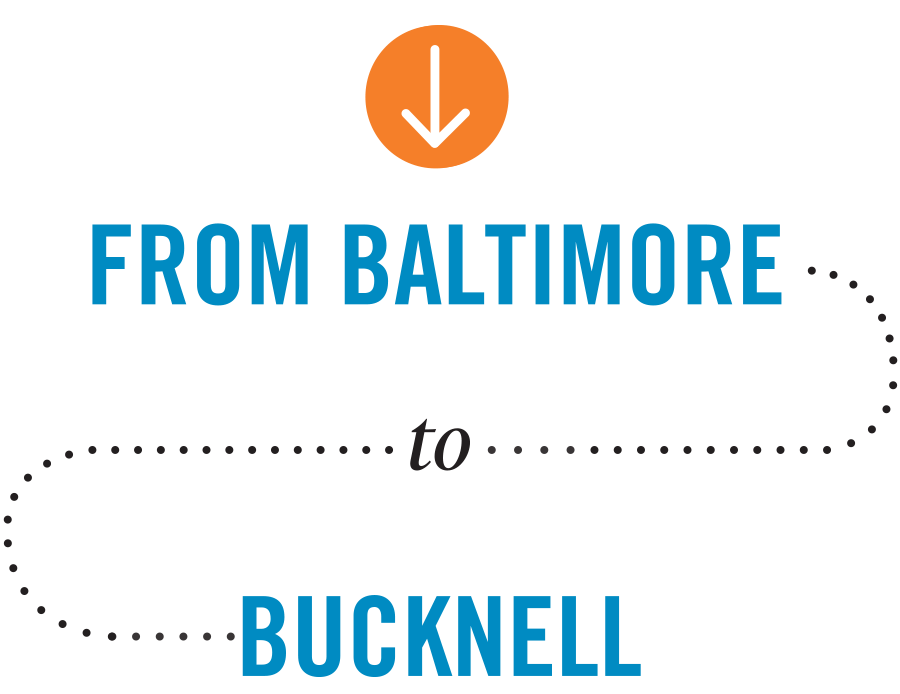
by Bryan Wendell
To combat society’s most menacing ills, we’re going to need more doers than talkers.
We’re going to need people like Alana Fisher ’24. The sociology major from Baltimore says she chose Bucknell because she wants to go beyond just studying and talking about racism, police brutality and anti-Semitism. She wants to do something about those pernicious problems.
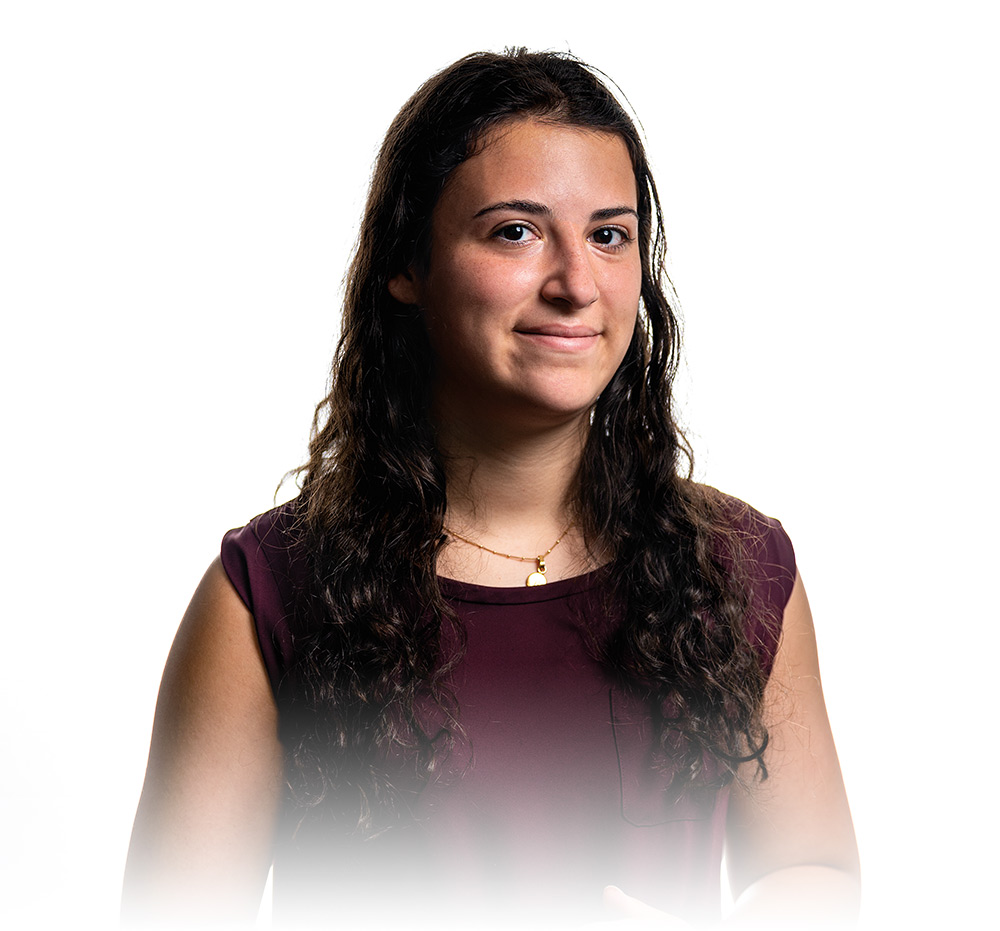

To combat society’s most menacing ills, we’re going to need more doers than talkers.
We’re going to need people like Alana Fisher ’24. The sociology major from Baltimore says she chose Bucknell because she wants to go beyond just studying and talking about racism, police brutality and anti-Semitism. She wants to do something about those pernicious problems.
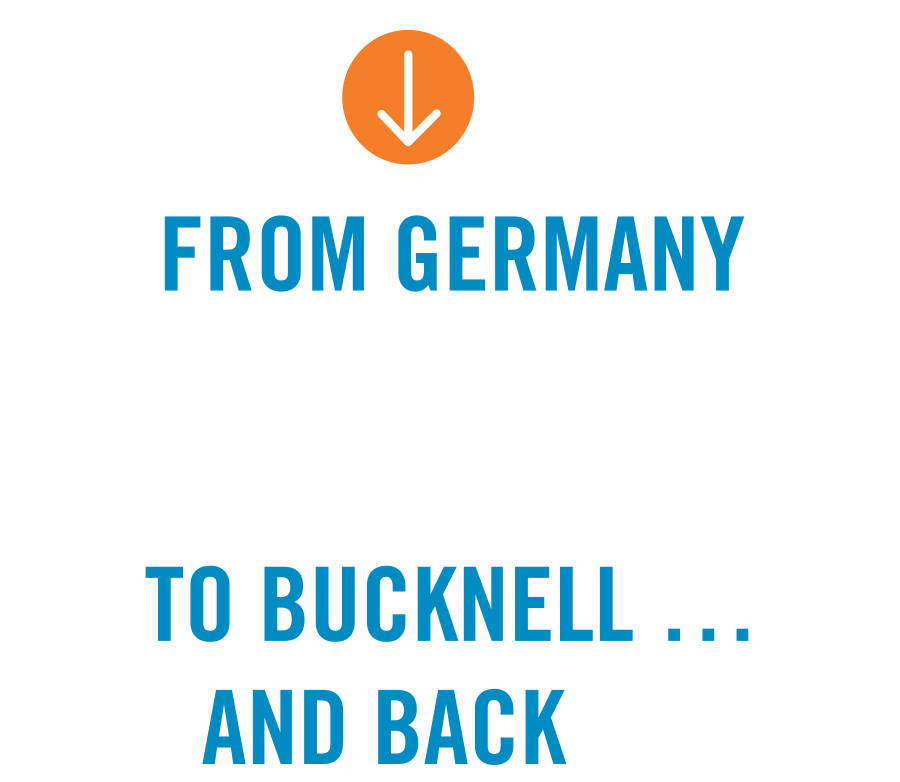
by Matt Hughes
Growing up in Germany, Chris McNaughton ’07 dreamed of playing professional soccer. But when his height reached 6-feet-11-inches, McNaughton says basketball chose him.
The chance to prepare for a pro career and get a top-tier education brought McNaughton to Bucknell, where he started at center on the two teams notching the Bison men’s only victories to date in the NCAA Tournament (the 2005 appearance against Kansas, where he hit a game-winning hookshot, is still the highlight of his career, he says).
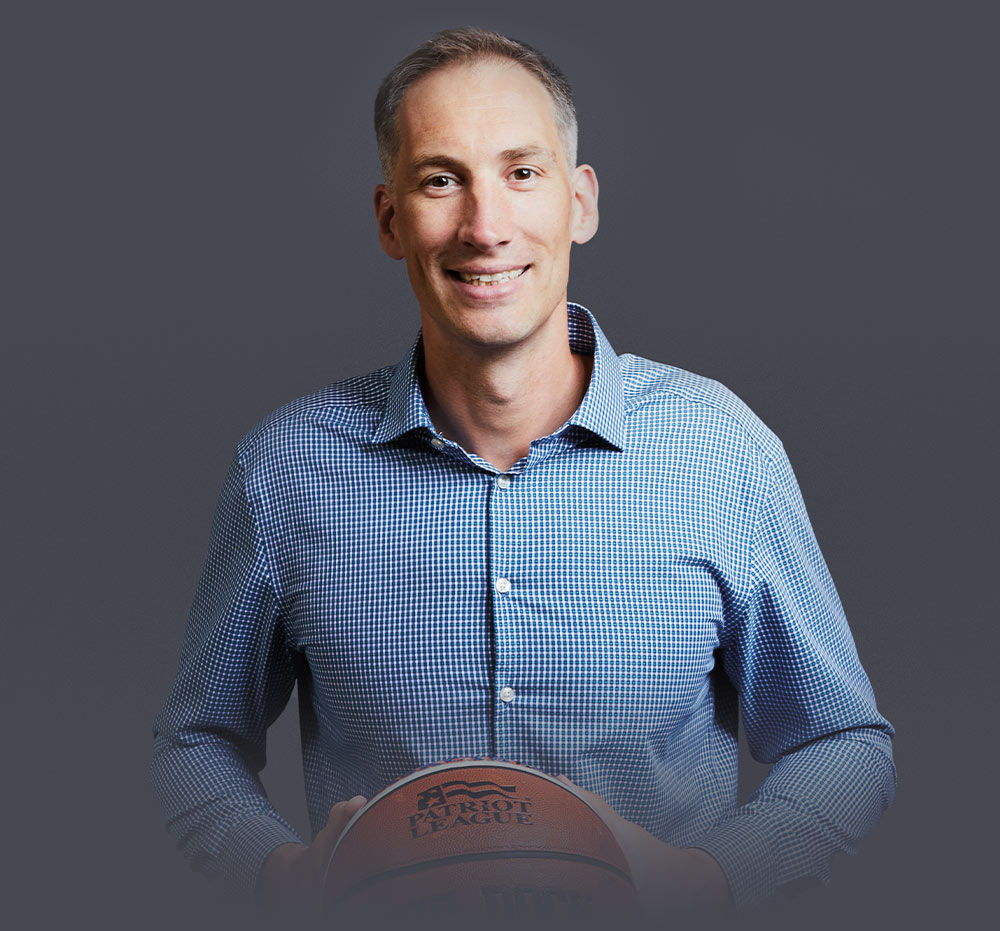

Growing up in Germany, Chris McNaughton ’07 dreamed of playing professional soccer. But when his height reached 6-feet-11-inches, McNaughton says basketball chose him.
The chance to prepare for a pro career and get a top-tier education brought McNaughton to Bucknell, where he started at center on the two teams notching the Bison men’s only victories to date in the NCAA Tournament (the 2005 appearance against Kansas, where he hit a game-winning hookshot, is still the highlight of his career, he says).
Lewisburg, Pa.
This article reminded me about my first research project simulating the full-scale bridge abutment in Dauphin County. For a small engineering college, this project was huge. With Professors Carl Kindig and Robert Brungraber G’05 and three students, I was driving 20 40-foot-long steel foundation piles. We had white steam shooting high above our heads. A group of student protestors wearing headbands came to the pile-driving site where the Bucknell West housing complex across Route 15 is located. They screamed, “STOP, STOP.” But we had pile-driving contractors, out-of-town engineers, PennDOT engineers and other interested engineers at the site. It was not possible to stop the work.
Professor emeritus of civil & environmental engineering
Lewisburg, Pa.
Oakmont, Pa.
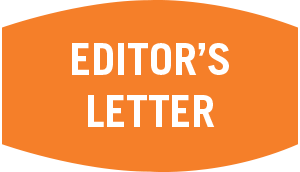
A year ago we debuted our new digital edition with a striking photo of Nadia Sasso ’11 and Nakea Tyson ’11 lighting up our cover. Our intent was to give an appealing option to those who prefer the convenience and ease that a mobile digital experience can offer. As with the print edition, our digital magazine is a gift to our readers — one that especially appeals to our alumni, parents and friends who are committed to environmental and resource sustainability.
Preserving resources has become more critical now than it was a year ago. This spring, Bucknell budget managers turned their attention to conserving resources as the pandemic took hold and prompted the closing of the campus. Cost cutting became even more critical this fall as the price of reopening became clear — nearly $12 million in unbudgeted expenses just for COVID-19 testing and purchase of PPE, signs and other collateral needed for the academic year. Other unexpected expenses amount to many millions more.
For instance, while Bucknell rejoiced in welcoming its largest first-year class — 991 exceptional students — recruiting that class required an unprojected increase in financial aid.
And so, this will be the academic year of further belt tightening. We’ve looked at ways we can squeeze the magazine budget without reducing our quarterly frequency or diluting the quality of our visual and editorial report. To do so, we have reduced our page count from 72 to 64 pages. Like some institutions, we are halting our international mailing, which costs more than $3 per magazine and comes with uncertainty during the pandemic, as some countries have excluded mail from the U.S. or experienced delays in delivery.
That’s where the digital edition comes in. Each quarter, our international readers will receive an email notification when the digital edition is online at magazine.bucknell.edu along with a PDF of class notes. With more than 1,000 international recipients, this change will allow us to save $12,000 per year while still offering the full Bucknell Magazine experience for our readers abroad.
Our subscribers residing in the United States will maintain their print subscriptions — unless they have already requested just the digital edition. Digital-only subscribers receive a quarterly magazine email and a PDF of class notes. You may wonder why the class notes aren’t included in the digital edition. We exclude them to protect the personal information Bucknellians love to share with one another; if included in the digital edition, it would be publicly available and searchable.
As this issue went to press we had more than 700 digital-only subscribers. Making the switch not only spares trees but also precious dollars that can instead support the undergraduate experience for our students. If you prefer to be a digital-only subscriber, please write to us at bmagazine@bucknell.edu.
Blaze Berdahl ’02’s voice-over work hasn’t stalled during the pandemic.
Photograph by Sally Montana

magazine
Volume 13, Issue 4
Interim Chief Communications Officer
Heather Johns
Editor
Sherri Kimmel
Design
Amy Wells
Associate Editor
Matt Hughes
Class Notes Editor
Heidi Hormel
Contributors
Brad Tufts
Emily Paine
Brooke Thames
Bryan Wendell
Lisa Leighton
Editorial Assistant
Kim Faulk
Website
bucknell.edu/bmagazine
Contact
Email: bmagazine@bucknell.edu
Class Notes:
classnotes@bucknell.edu
Telephone: 570-577-3611
Bucknell Magazine
(ISSN 1044-7563), of which this is volume 13, number 4, is published in winter, spring, summer and fall by Bucknell University, One Dent Drive, Lewisburg, PA 17837. Periodicals Postage paid at Lewisburg, PA and additional mailing offices.
Permit No. 068-880.
Circulation
53,000
Postmaster
Send all address changes to:
Office of Records,
301 Market St., Suite 2
Bucknell University, Lewisburg, PA 17837
© 2020 Bucknell University
Please recycle after use.

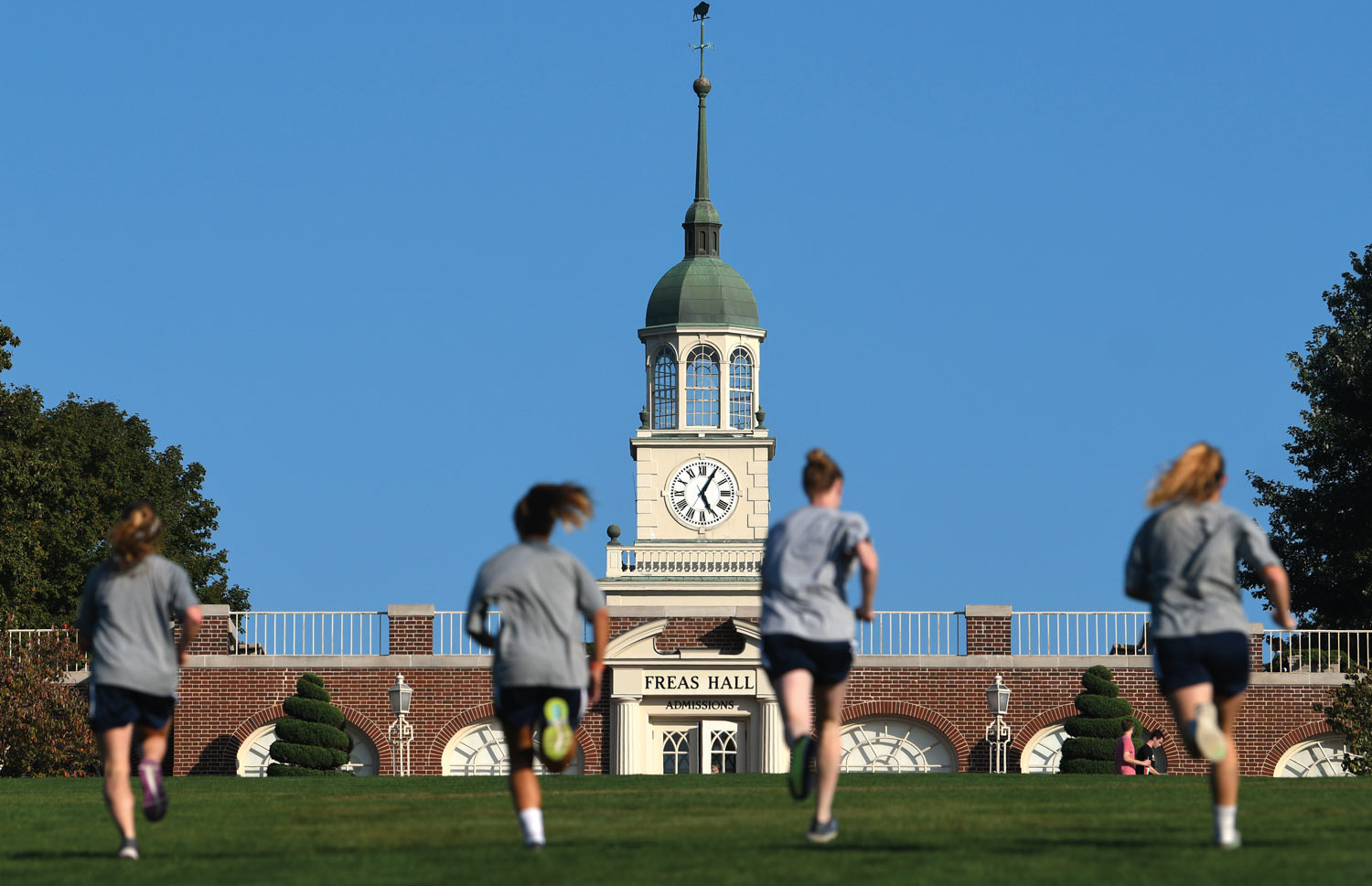

In fall 2020, COVID-19 is dominating the headlines and, as in 1918, disrupting the dreams of Bison athletes and their fans. On July 13, the Patriot League Council of Presidents announced suspension of the fall season. For college athletes, this meant no competition in the fall but a prospect that the fall season could shift to the spring semester.
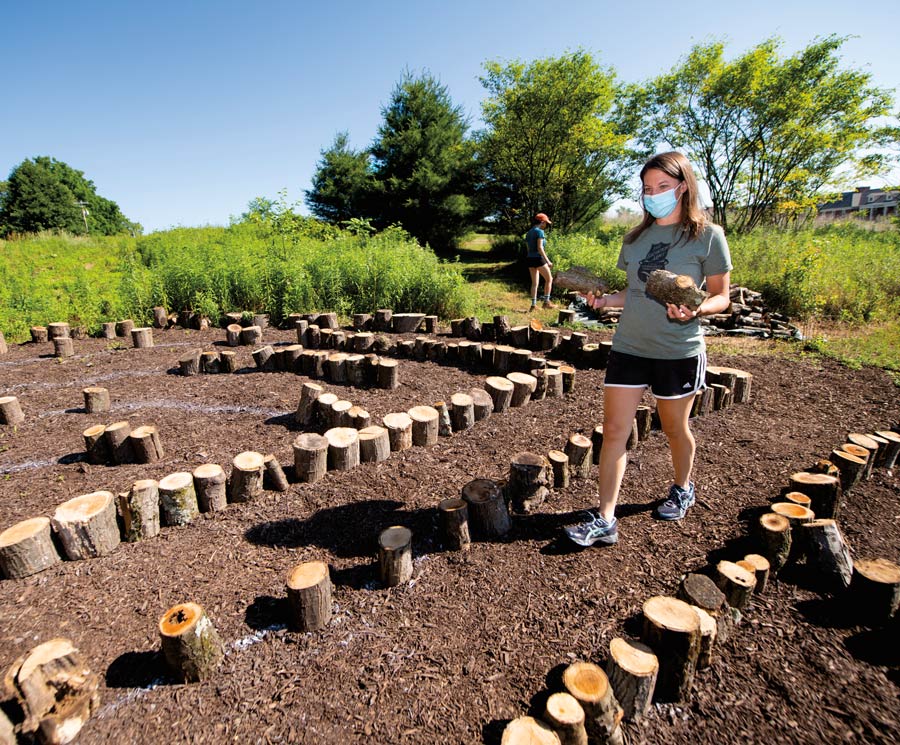

 Bucknell University Farm, Lewisburg
Bucknell University Farm, LewisburgWalking a labyrinth isn’t about getting lost, says the Rev. Kurt Nelson, Bucknell’s director of religious & spiritual life, it’s about finding something within yourself.
“It’s meant to be meditative practice of movement,” Nelson says. “The goal is simply to find your natural pace as you follow a single pathway toward the center, and then follow the same path back out.”
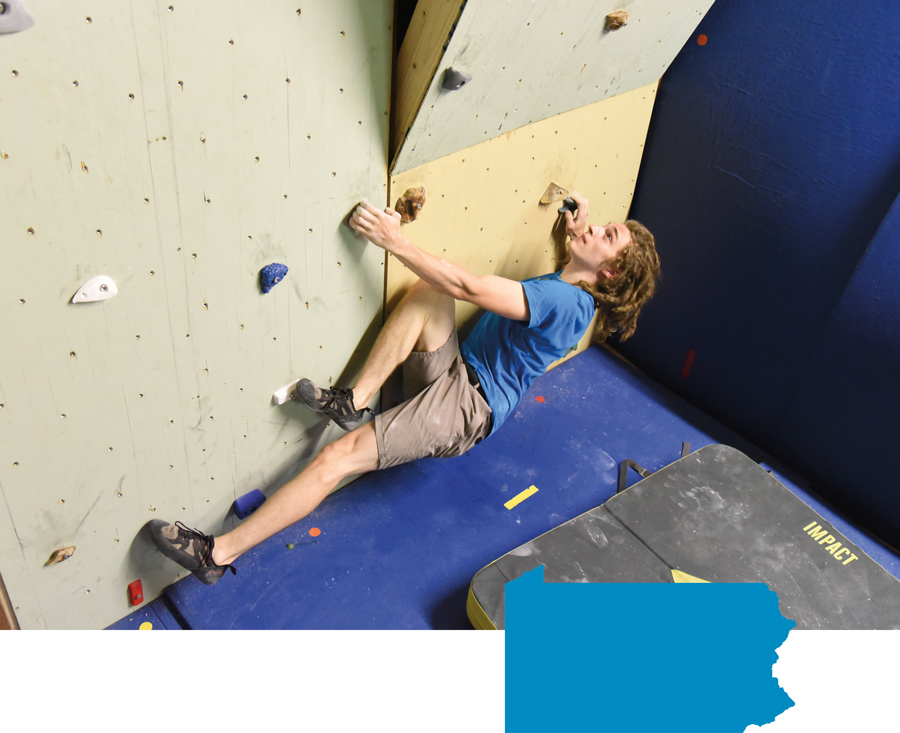

 Milford, Pa.
Milford, Pa.Michael Duncan ’23 first learned to climb on rocky escarpments around his hometown — in a rugged corner of Pennsylvania hemmed in by the Catskills and New Jersey’s Skylands region. At Bucknell, he burnished his skills and sinewy muscles with a tight community of climbers at Gerhard Fieldhouse’s indoor wall. When COVID-19 cut Duncan off from both locales this summer (solo outdoor climbing is risky, and Duncan was self-isolating to protect elderly family members), he found a creative way to practice his favorite sport in quarantine.
New leader expands equity and inclusivity efforts
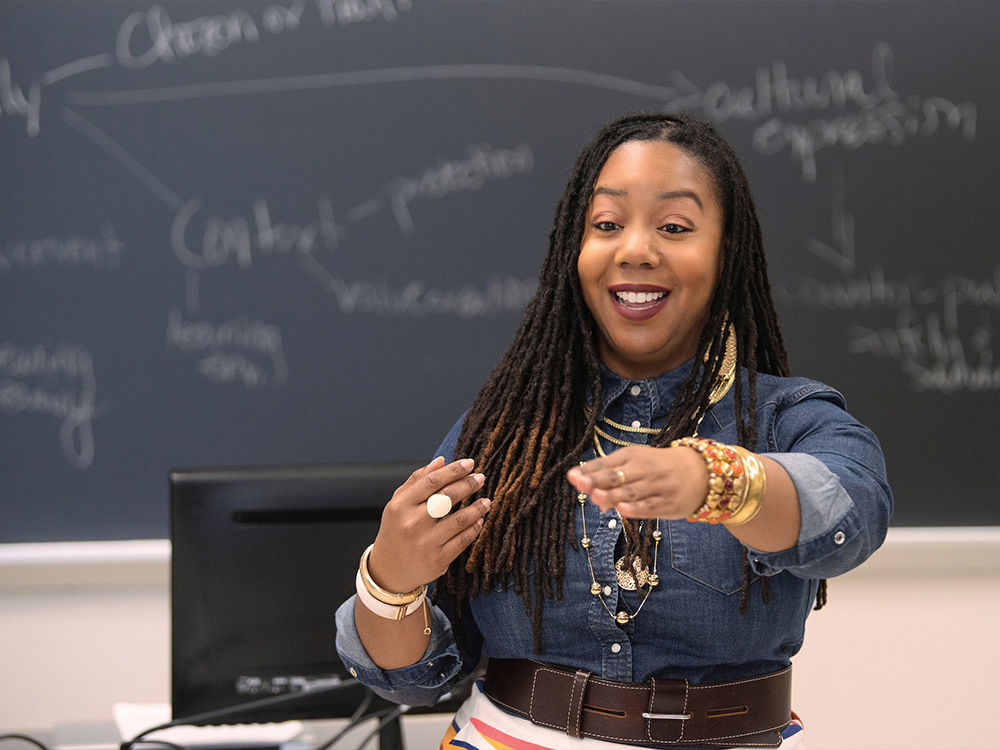


Since joining Bucknell in 2011, Professor Thelathia “Nikki” Young, women’s & gender studies and religion, has worked to cultivate an educational community in which every Bucknellian feels a sense of belonging. This fall, Young accelerated her efforts as the new associate provost for equity & inclusive excellence — an appointment that supports a crucial element in the University’s proactive plan to foster inclusivity by confronting systemic racism and racial injustice.
To amplify the voices of Bucknell’s minoritized communities, President John Bravman announced this summer that his senior leadership team would now include Young’s position. Her appointment, effective Aug. 1, followed a year in which she served as interim associate provost.
Thomas Buchholz ’84, a philosophy major, decided to become a physician after shadowing a doctor at Geisinger during his sophomore year at Bucknell. He spent the bulk of his career at the MD Anderson Cancer Center in Houston as a radiation oncologist specializing in breast cancer treatment. In the latter years of his 20-year tenure he was provost, executive vice president and physician-in-chief. In 2018, he moved to San Diego to become the first medical director and a corporate senior vice president at the newly opened Scripps MD Anderson Cancer Center.

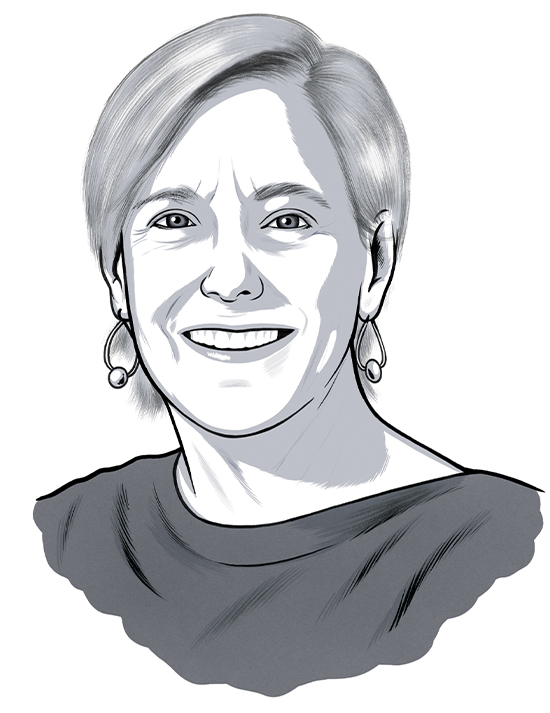
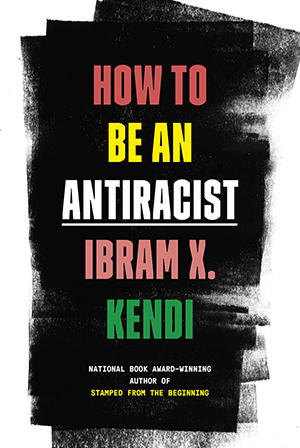

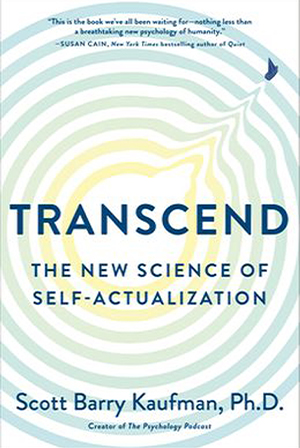



As I write, nine of the top 10 books on the New York Times nonfiction best-seller list are about anti-Black racism and white supremacy, including this one. Through compelling stories and analysis, Kendi argues that being nonracist is not enough. Rather we are called to be anti-racist. For white folks steeped in privilege, this book helps to lift the blinders so that we can do the work needed to dismantle racist policies once and for all

Written by a Native American poet and botanist, this book is at once devastating and hopeful. Kimmerer’s descriptions of biodiversity loss and stories of our profound disconnection to the natural world are piercing. She offers a vision of how we can live with greater reverence to the more-than-human world and become the good stewards we are meant to be.

You might recognize the author as the creator of The Psychology Podcast and the title as a reference to the pinnacle of Abraham Maslow’s hierarchy of needs. This book is a delightful review of Maslow’s life and work, updated with the most recent scholarship. It’s also an exploration of Maslow’s late-in-life insight that self-actualization is not the end point to living to our fullest but is, paradoxically, a transitional goal along the path to self-transcendence.

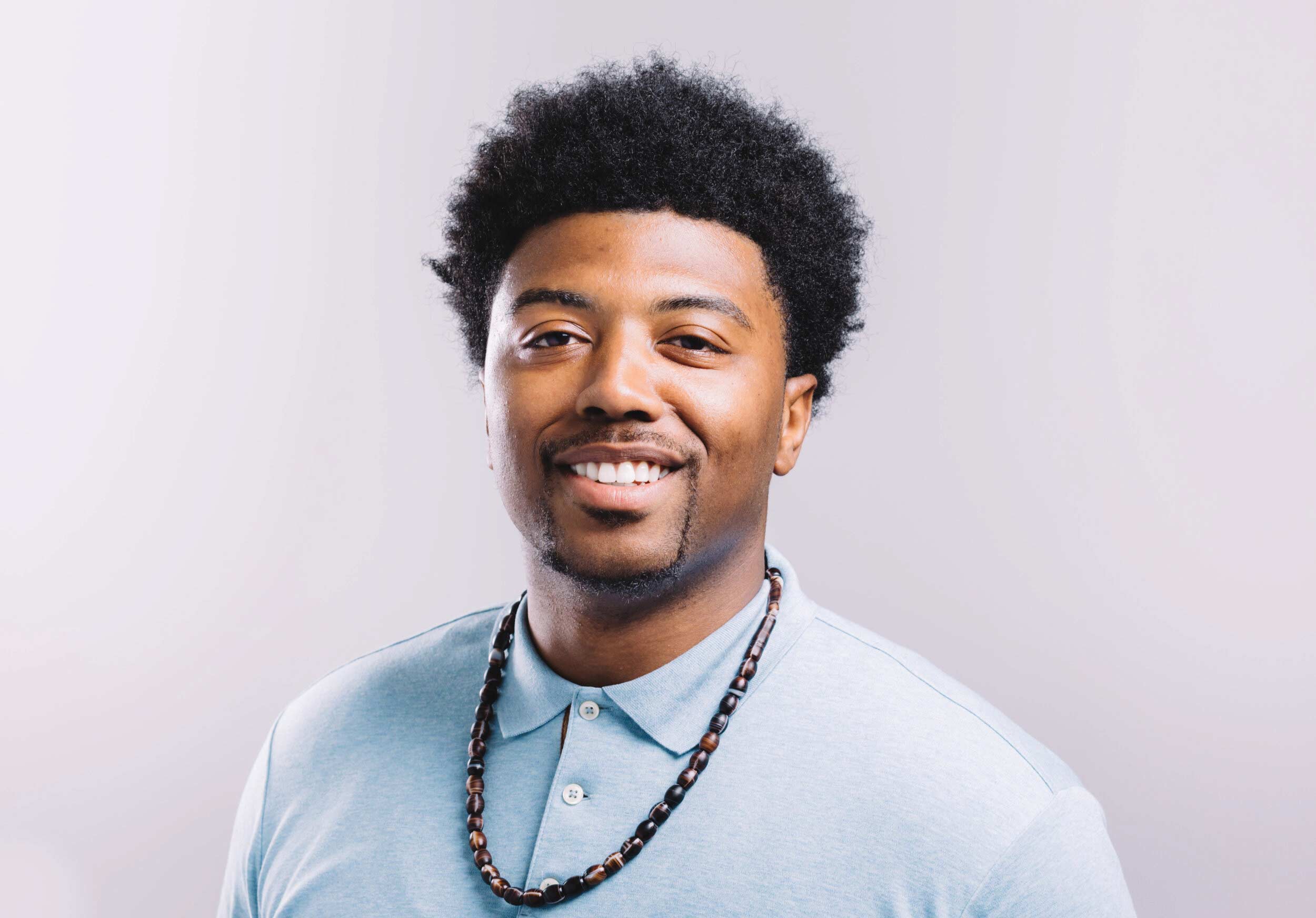
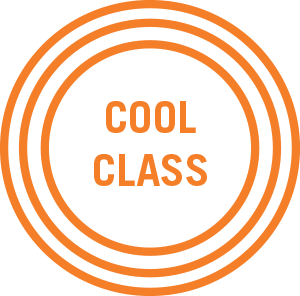
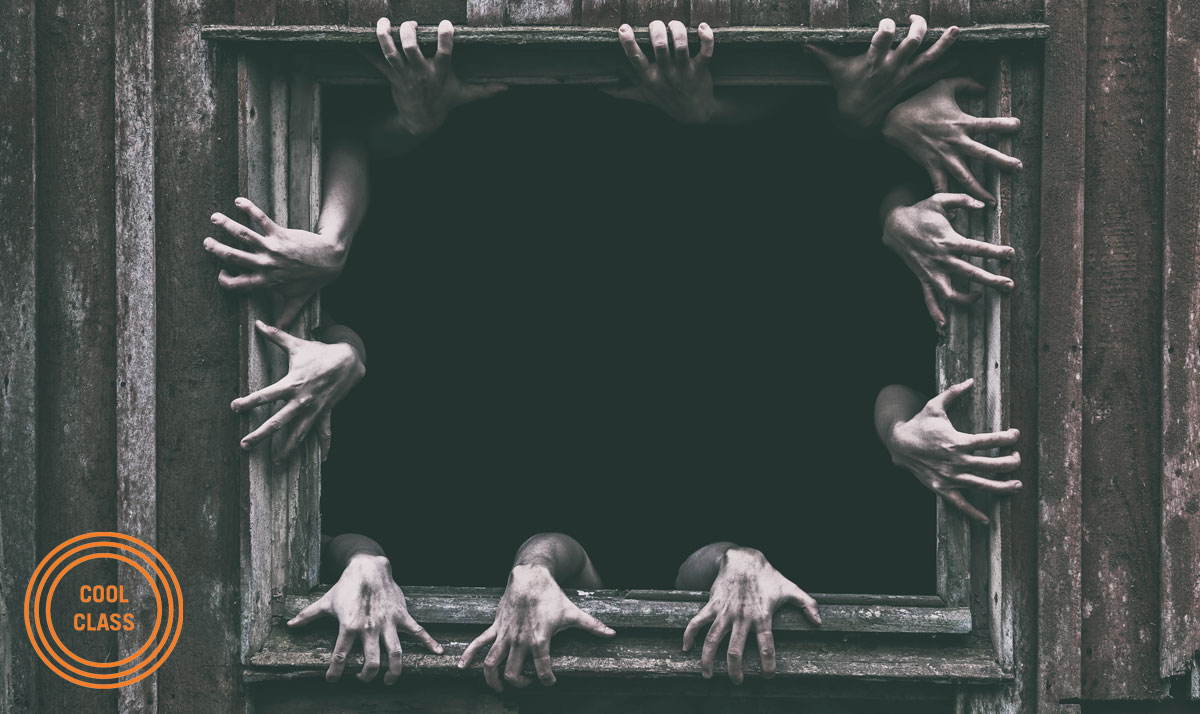
From Slavery to Pandemics
Students may enroll in my class on zombies expecting the cheap thrills of fake blood, gory makeup and low-budget monsters. Instead, they delve into topics such as racism, slavery, colonialism, U.S.-Caribbean relations and global pandemics.
Zombies are part of the folklore of Haiti, rising from the experience of slavery. According to legend, these people had their souls stolen through sorcery and were forced to work endlessly in sugar plantations, finding relief only in death.
In the rare event that swimmer Maggie Wyngowski ’21 starts to trail in the 400-meter individual medley (IM) — an endurance race featuring four strokes: butterfly, backstroke, breaststroke and freestyle — she doesn’t worry. The best is usually yet to come.
“My strongest stroke is the breaststroke, and that’s really where I catch up or pull away from everyone else,” the three-time All-Patriot League First Team honoree says. Wyngowski, who holds the school record in the event (4:15.26), also is a five-time individual Patriot League medalist, winning gold in the 400 IM in 2020 and silver during her first two seasons.

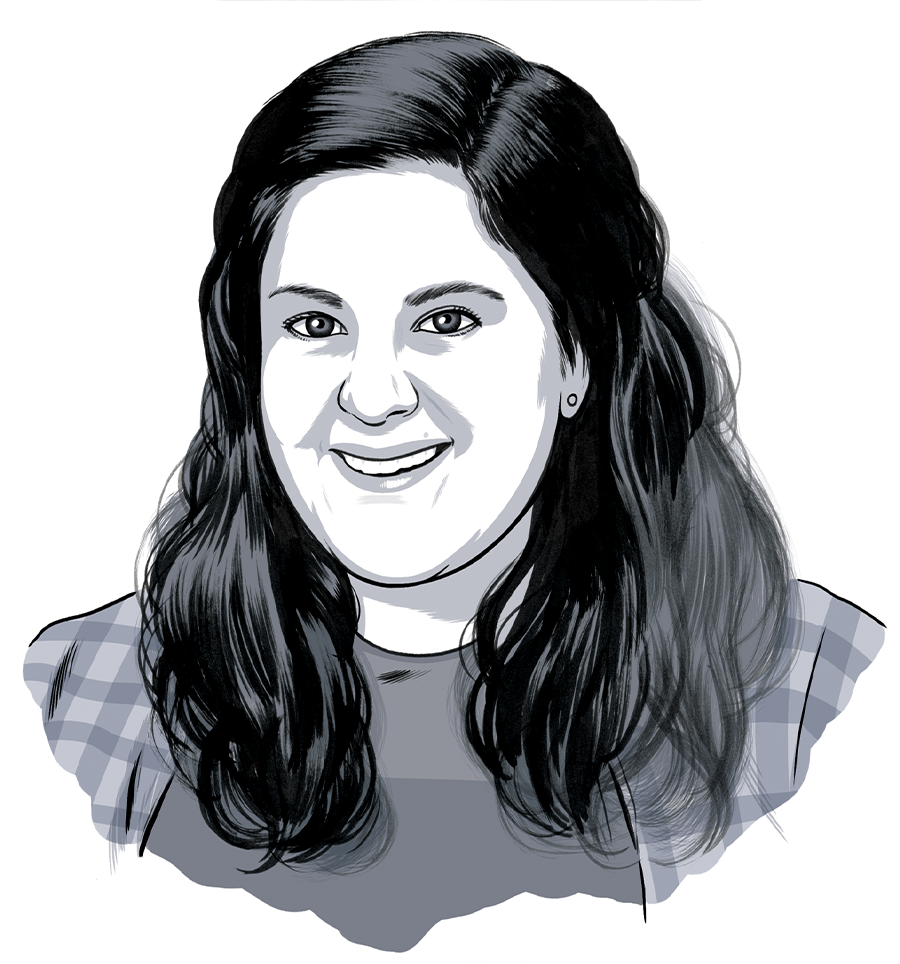
 Abby Brown, a Library & Information Technology project manager, has a long-nurtured passion for gardening and making good use of the Earth’s bounty — fruits of a close relationship with her grandmother, who taught the young Abby to garden, cook and preserve foods. Brown makes natural skin-care products and writes a lifestyle blog called TheHeirloomLady.com. One of her fall favorites is pumpkin coffee scrub.
Abby Brown, a Library & Information Technology project manager, has a long-nurtured passion for gardening and making good use of the Earth’s bounty — fruits of a close relationship with her grandmother, who taught the young Abby to garden, cook and preserve foods. Brown makes natural skin-care products and writes a lifestyle blog called TheHeirloomLady.com. One of her fall favorites is pumpkin coffee scrub. 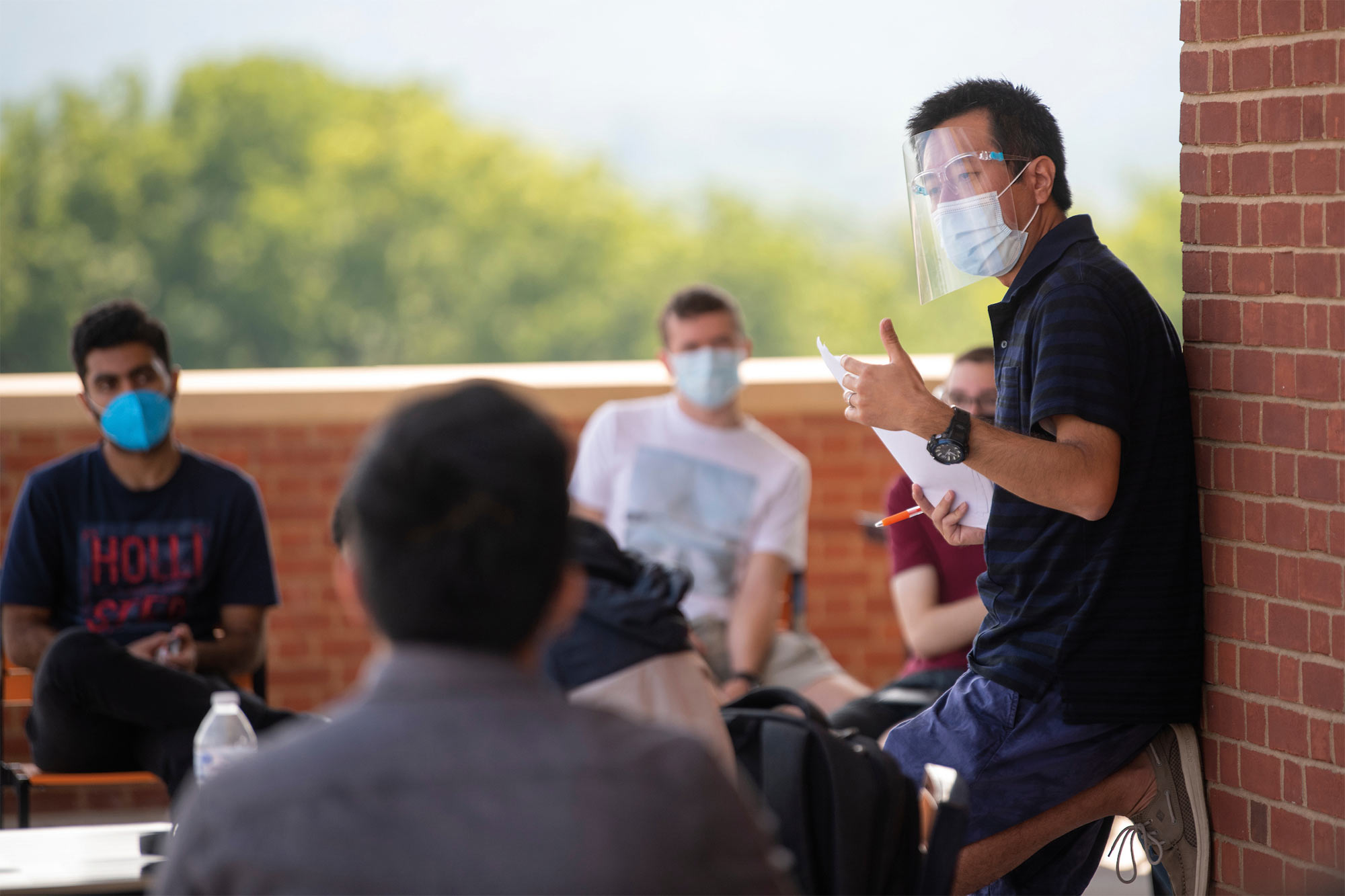

eturning to Bucknell’s campus felt like stepping onto a movie set to Jaden Lee ’22. At the semester’s start, the mechanical engineering major was still getting used to taking visual cues from the more than 10,000 signs hung on campus over the summer, illustrating where to stand while waiting for food, checking equipment out from the library or directing one-way movement through buildings. “It’s like stage directions: ‘Go upstairs one way and down another.’ ‘Stand on this spot,’ ” he says.
The proliferation of signs as well as face coverings — many in orange and blue — might have been the most obvious indicators of change as Bucknell reopened on Aug. 17 for an in-person fall semester amid an ongoing pandemic.
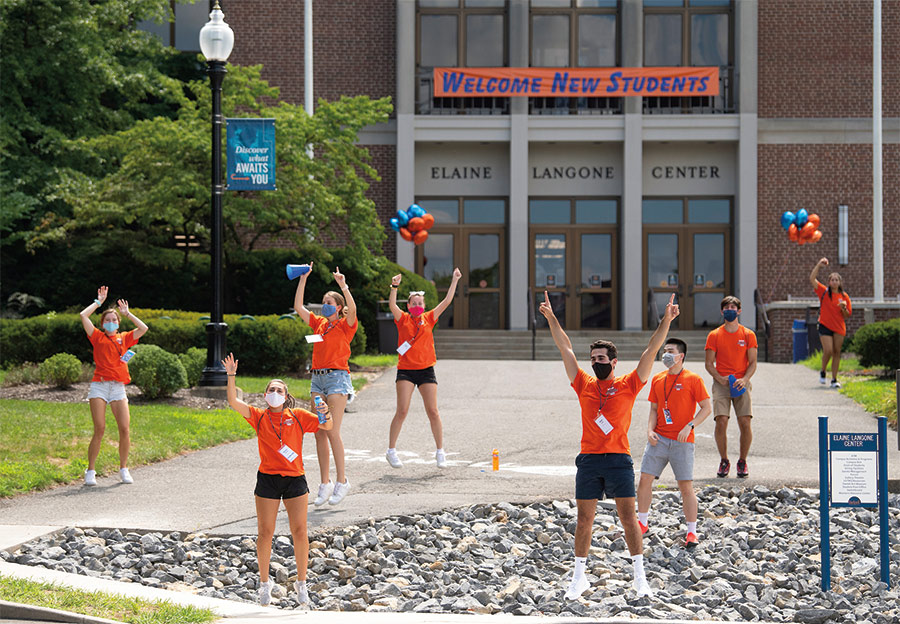
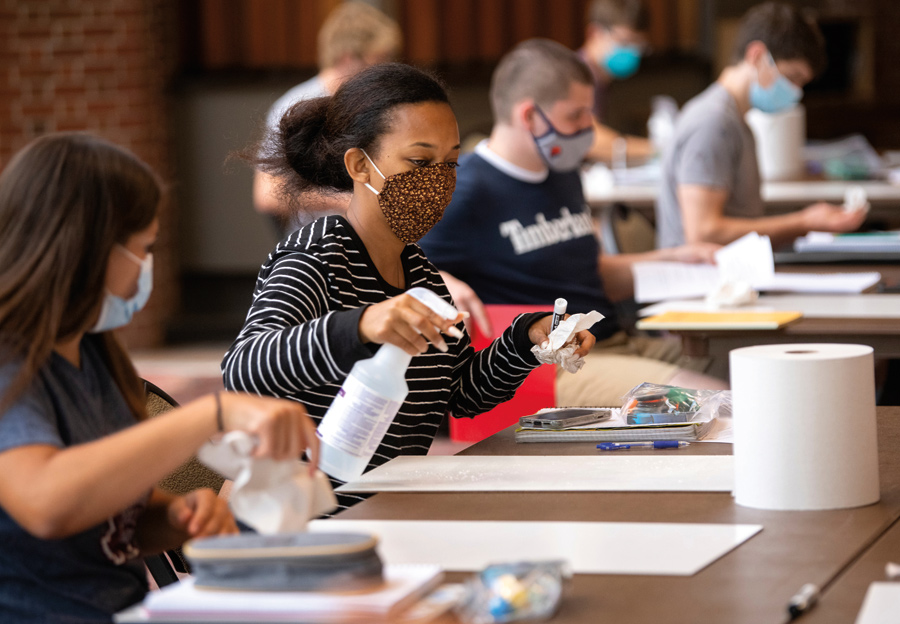

Bottom: On the first day of classes, students get into the groove of an unusual academic year.

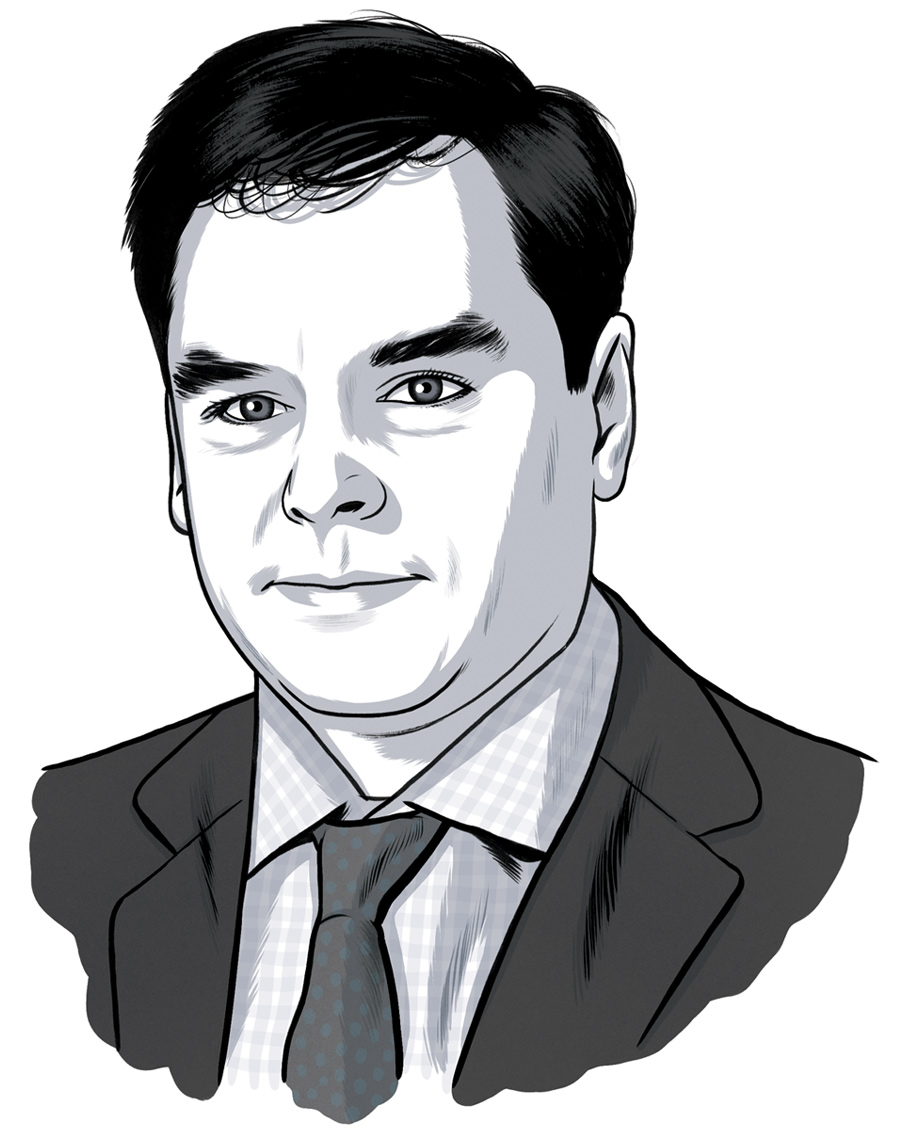
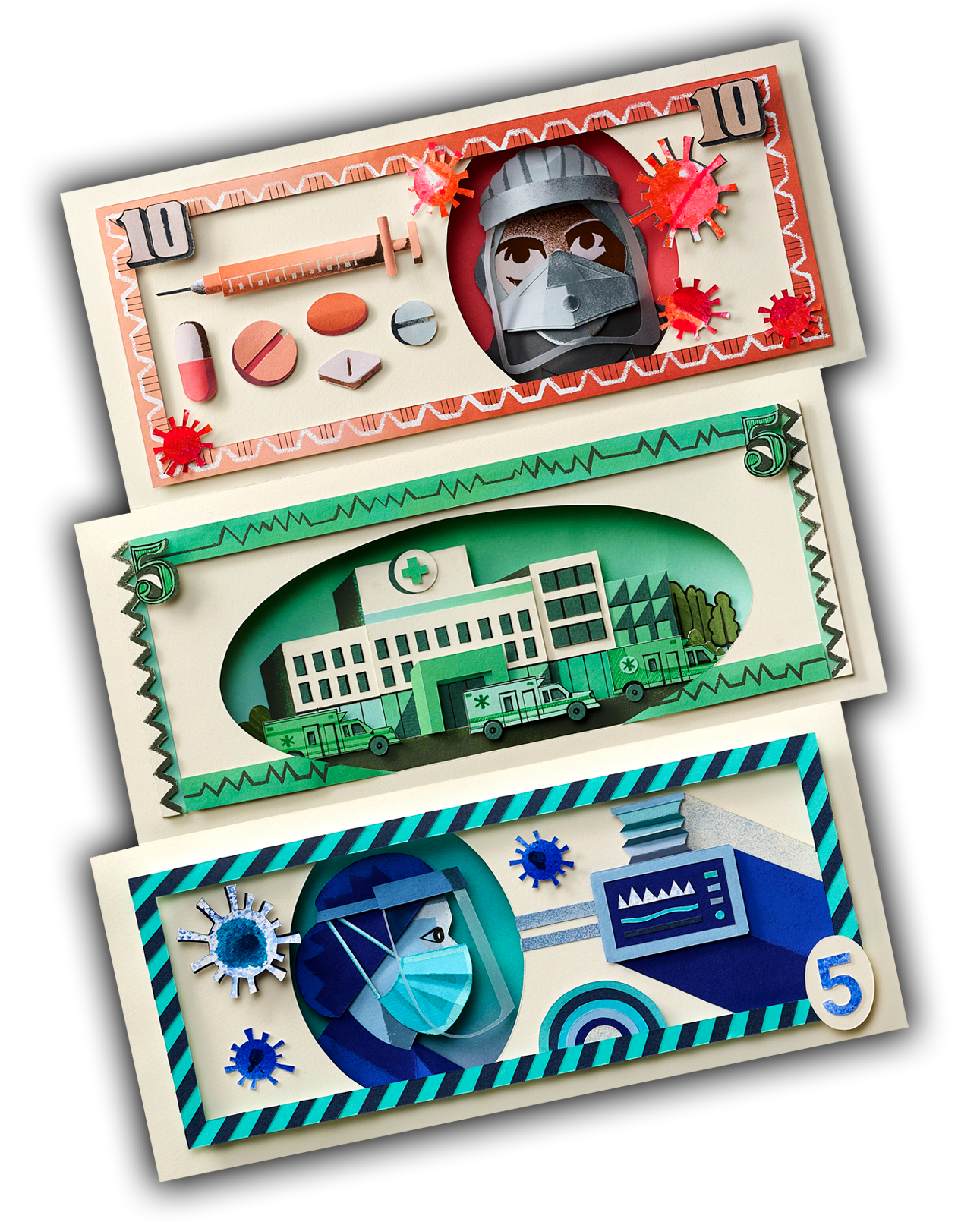

Coal Mine

paper art by HELEN MUSSELWHITE

Coal Mine

paper art by HELEN MUSSELWHITE
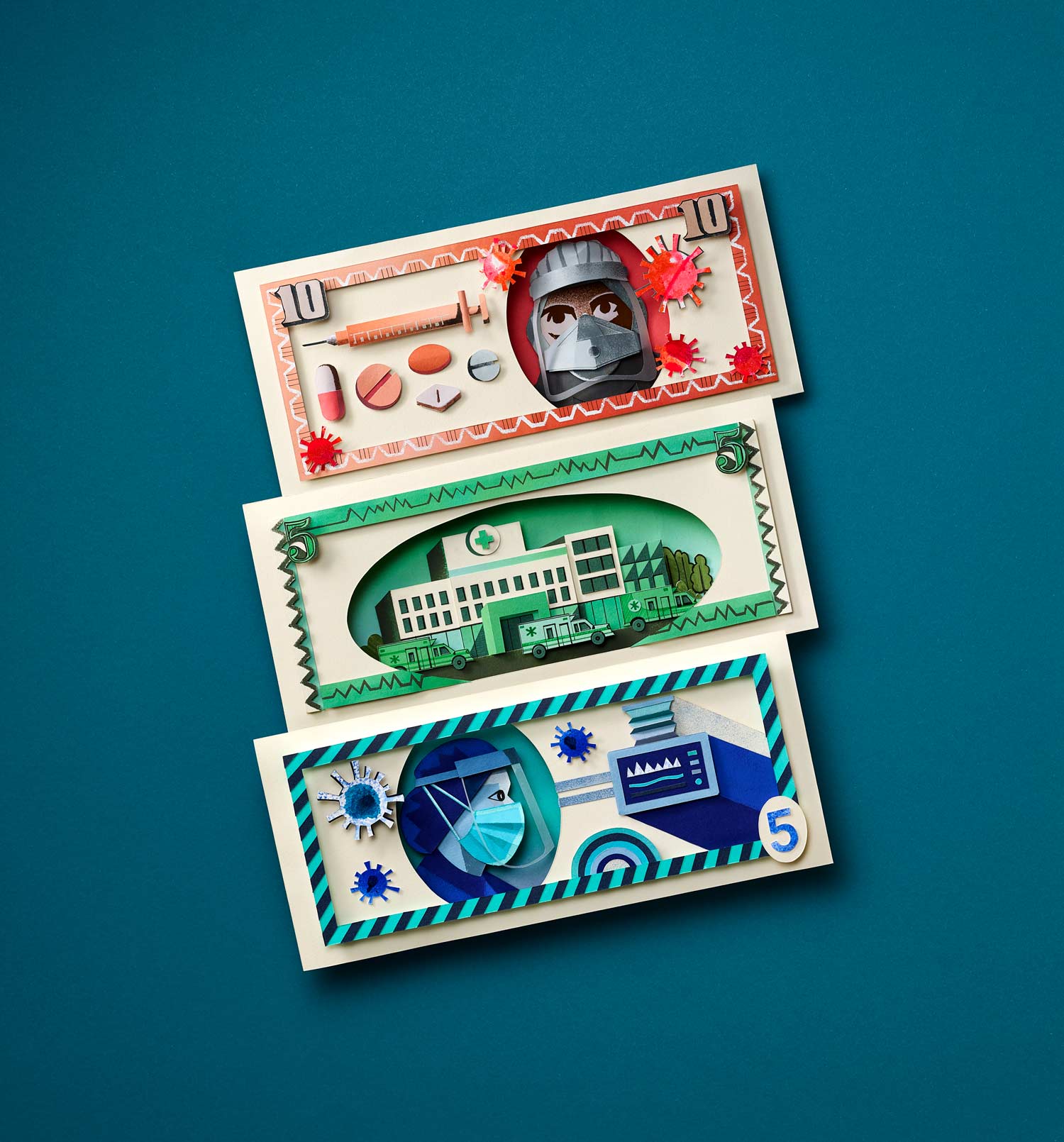
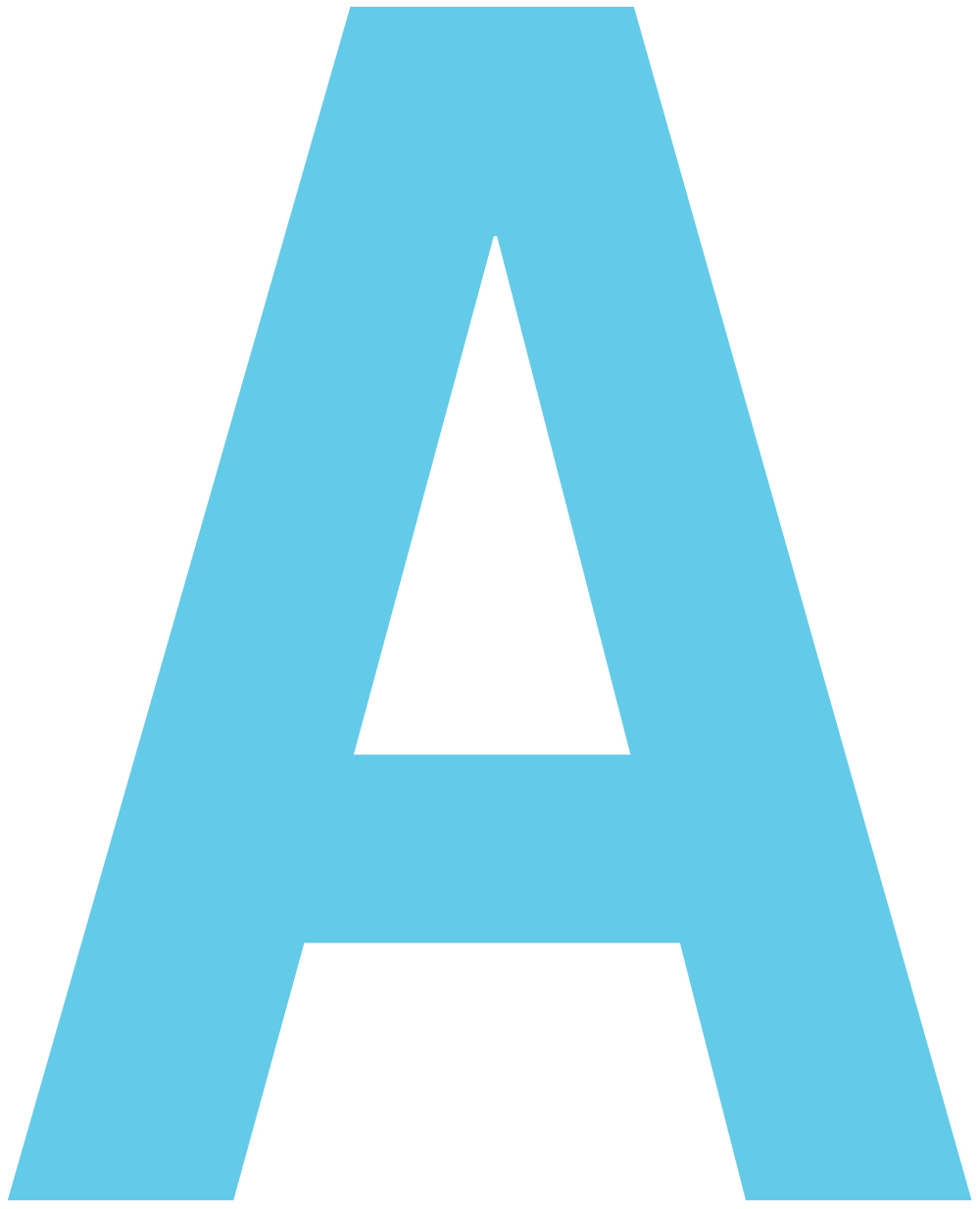
Coronavirus sticker shock like this has shined a new spotlight on an aspect of the medical system called balance billing — better-known as “surprise billing” — when treatment by a provider outside of a patient’s insurance coverage, unbeknownst to the patient, can unexpectedly jack up costs.
Choosing the best visual strategy to advance a particular feature’s storytelling arc is one of the greatest joys — and challenges — for a magazine editor. At Bucknell Magazine, we’re fortunate to have a talented consulting art director, Lauren Sanders, who helps us bring our stories to life. For our fall feature “COVID in the Coal Mine,” we sought conceptual art that could visually relate the complicated tale of the American health system’s struggles during the pandemic in a way photos of those interviewed would never allow. Lauren suggested a type of art with which we were unfamiliar — cut-paper art. Helen Musselwhite, a paper artist who lives in Wales, was our choice for our maiden voyage into papercut land.

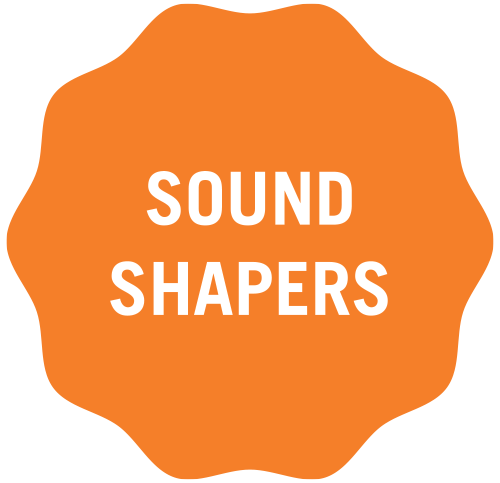
Powers
of
Voice
photograph by
SALLY MONTANA

Powers
of
Voice
photograph by
SALLY MONTANA
Almost all Hollywood filming stopped in the second quarter of 2020, which ran from April to June. The Los Angeles Times reports that only 194 shoot days — the lowest total on record — were completed during that span. That’s a 97.8% decrease from the same period a year before.
Fiedler ’02
Democrat, Pennsylvania state representative from Philadelphia, elected in 2018
Former radio journalist
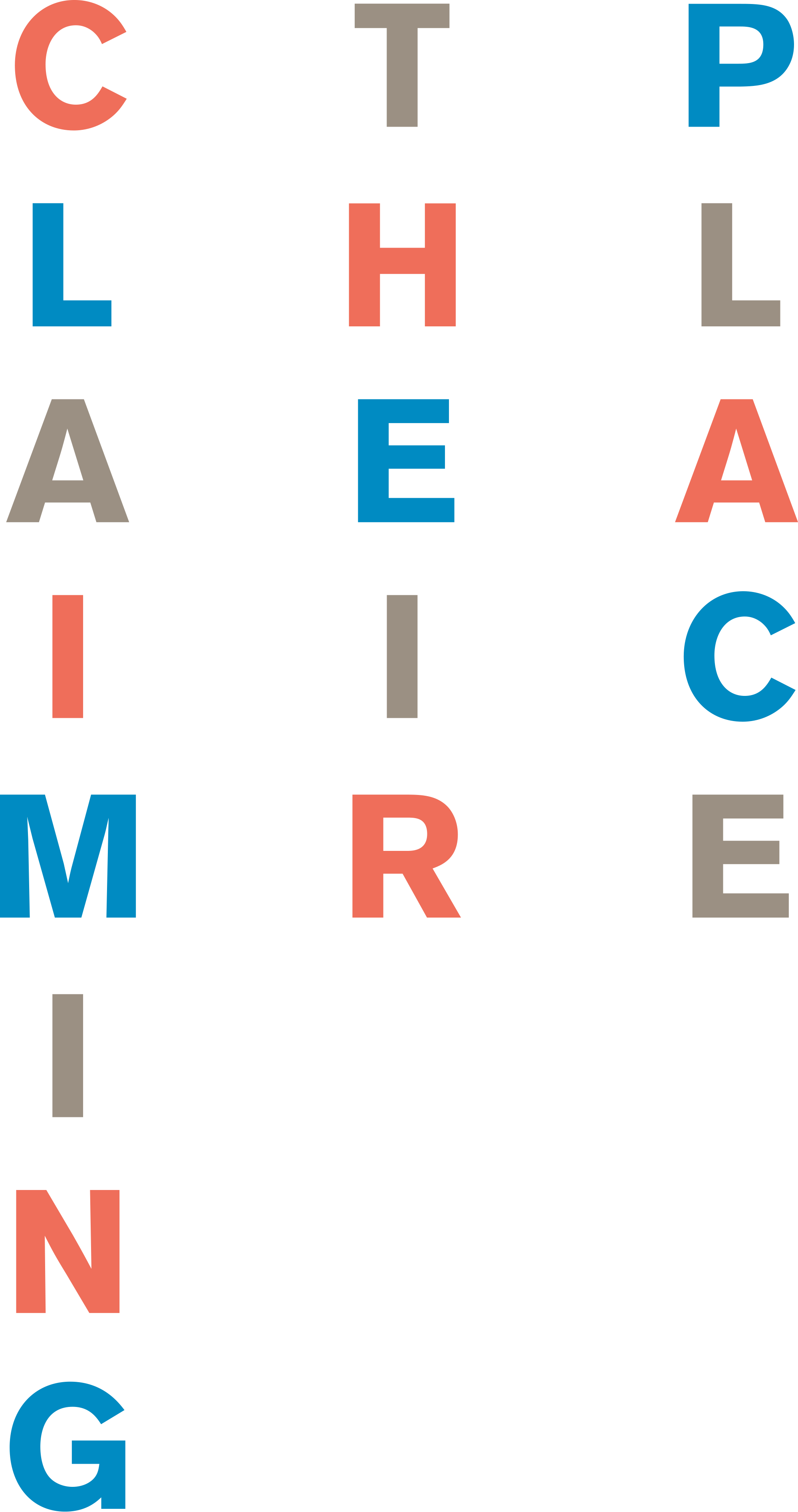
photographs by Dustin Fenstermacher
helly Simonds ’91 remembers her grandmother, who was born in 1899, telling her about the fight for women’s rights.
“She was always a trailblazer and bragged to me about riding a bicycle and wearing pants,” she says. “I knew from her that voting was something that women had to fight for — that she had to fight for — and now it’s really come full circle for me as a new legislator.”
Simonds gained national attention after losing her first run for the Virginia House of Delegates in 2017, when her opponent’s name was drawn out of a bowl to break a tie in the balloting. The former Spanish teacher ran again and won in 2019 — coincidentally, the same year Eileen Filler-Corn became the first woman elected speaker in the 401-year history of the Virginia House.
“We have come a long way in Iceland, be it for instance our legislation on parental leave or equal pay. This certainly makes it easier for women to achieve their goals,” Sverrisdottir says. “Our prime minister is a woman, five out of 11 ministers in Iceland’s government are women and the national commissioner of the Icelandic police is a woman.”
Her great-great-great-grandmother was the first woman in Reykjavík, the capital, to vote in a municipal election — in 1888. That was possible because she owned land.
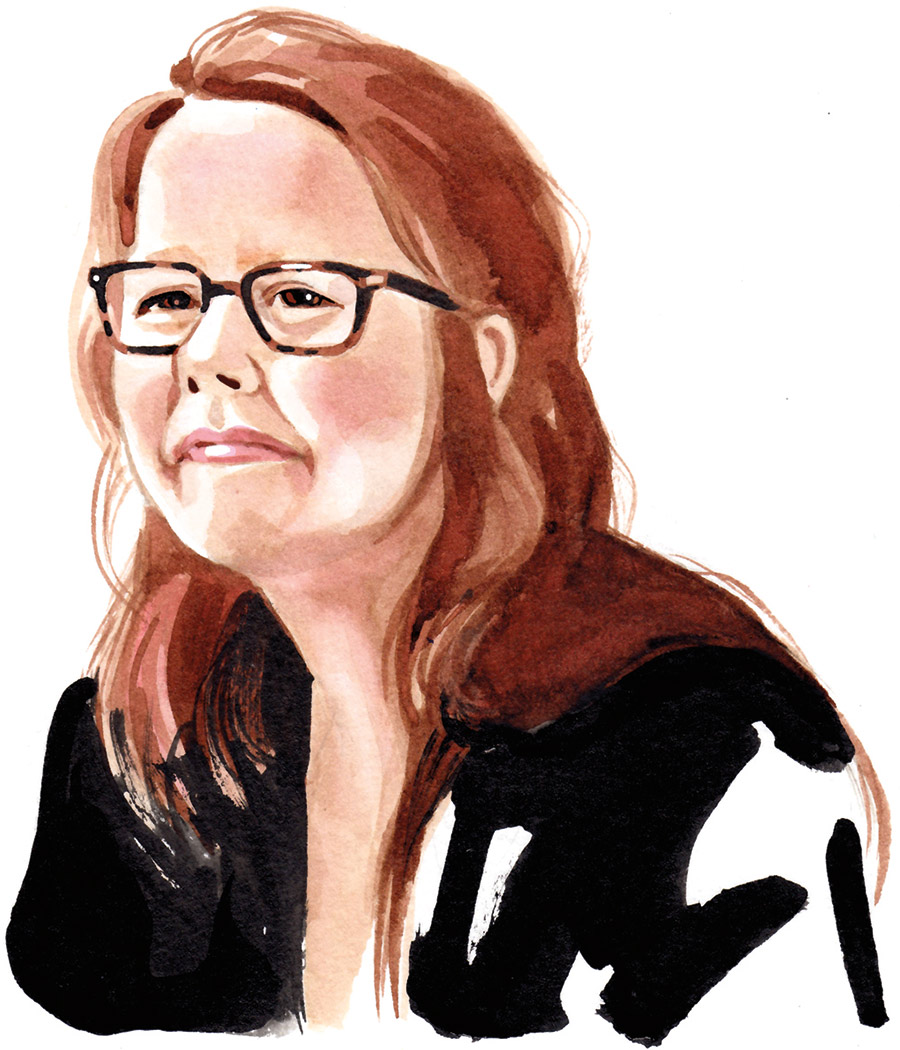

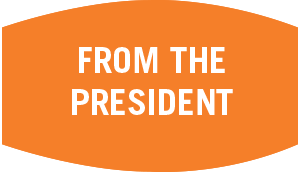
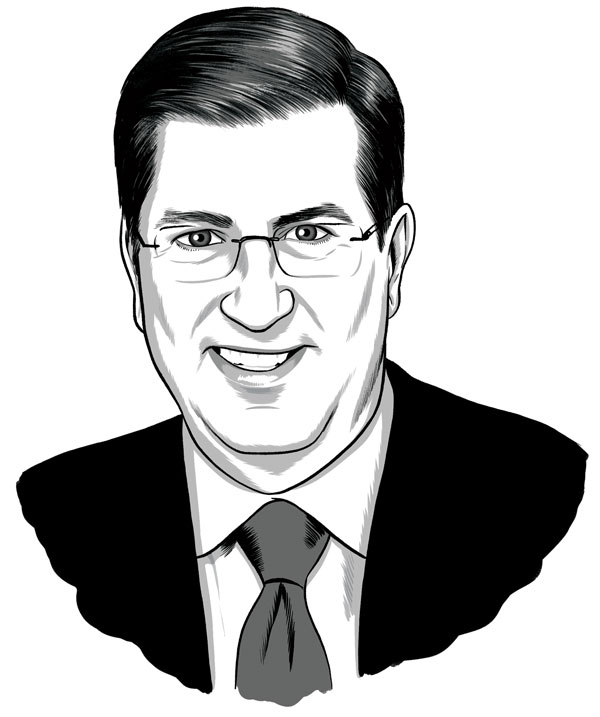
And now, as another deadly virus ravages the world, we anxiously await our era’s Salk to allay our fears. Now if only some of our citizens can overcome their hesitancy to accept the vaccine when it becomes available. Spurred on by the rhetoric of certain celebrities and anti-vaccine activists, many people fear preventatives are worse than the diseases themselves. As Nature, perhaps the leading science weekly in the world, reported in May, there are many false narratives being promulgated. They include: “coronaviruses will be used to implant microchips into people and […] a woman who took part in a UK vaccine trial died.”
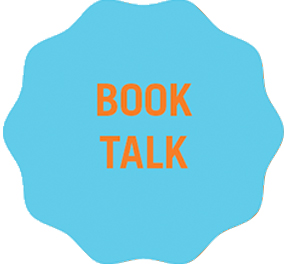
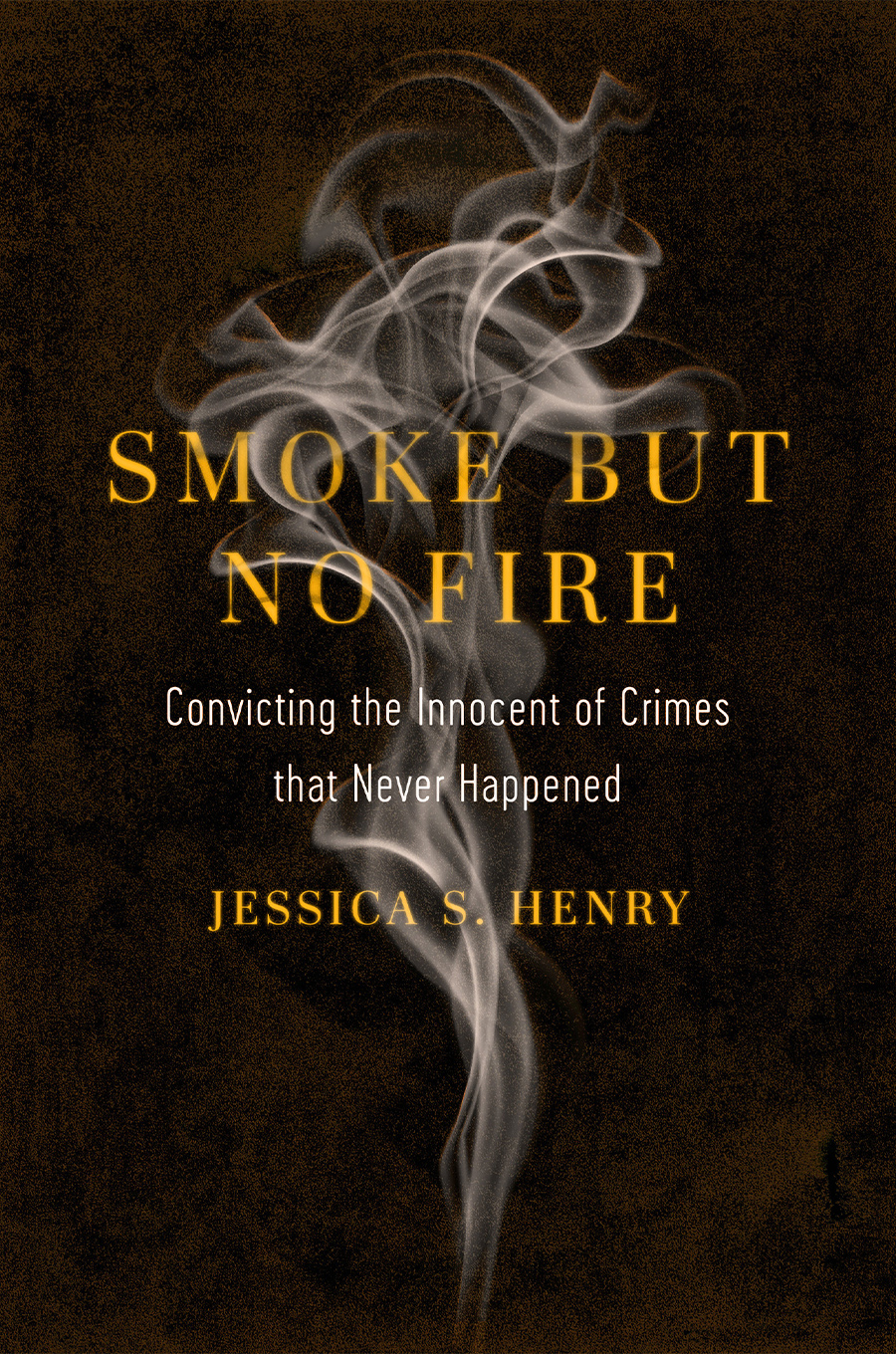
An affirmative response led her to delve deeply into the grave flaws in the criminal justice system underlying that startling statistic. The result is what she says is the first book to explore the causes and consequences of convicting individuals of crimes that never happened.
The damage begins “with the police and extends through prosecutors, defense lawyers and judges,” Henry adds. “The harm caused to the innocent person who is wrongly convicted, his or her family and society at large is tremendous. In a democratic society, we do not have an interest in prosecuting, convicting and incarcerating people for crimes that never occurred. That is not in our vision of what justice should be.”

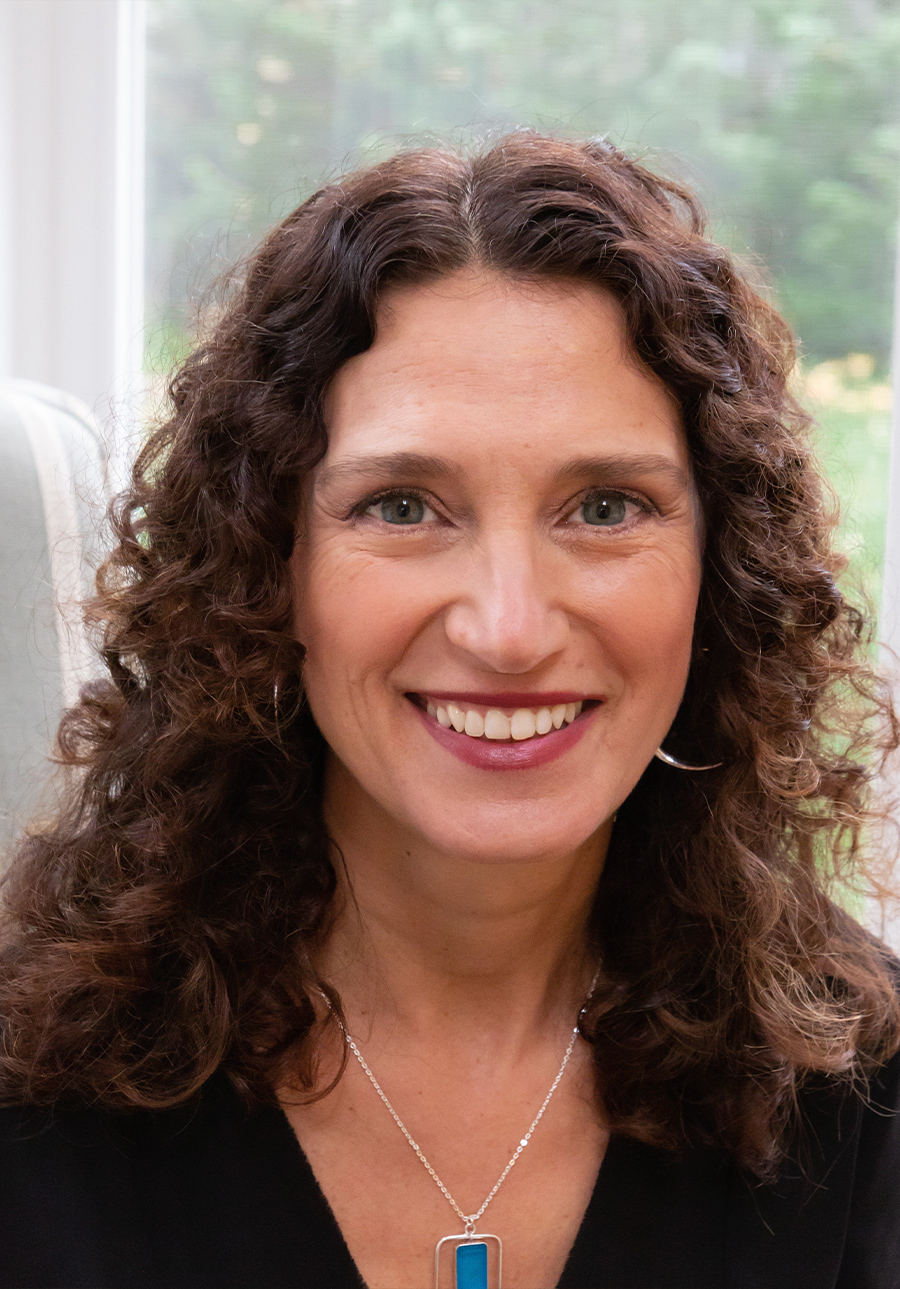

But then, sometimes, a text message arrives out of nowhere.
This summer, one came from a 2016 Baltimore Polytechnic Institute grad. The recipient was Anthony Harold ’77, an adviser with the CollegeBound Foundation, a Baltimore nonprofit. He guides about 400 students at the STEM-focused public school, step-by-step through the college application process.
In the text, a student who’d been raised in a single-parent home thanked Harold for helping her navigate the challenges of applying, finding scholarships and dealing with mountains of financial-aid paperwork.
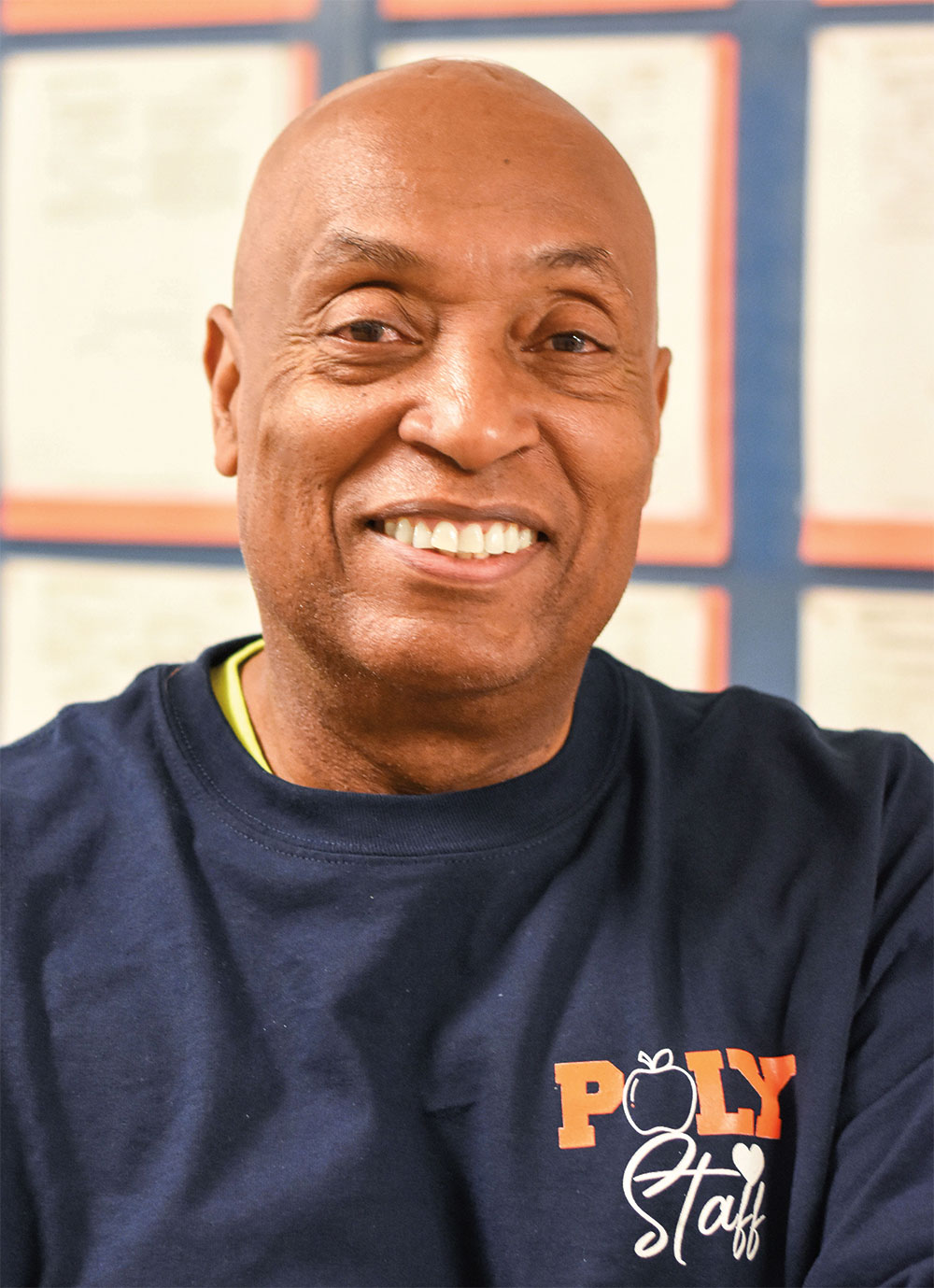

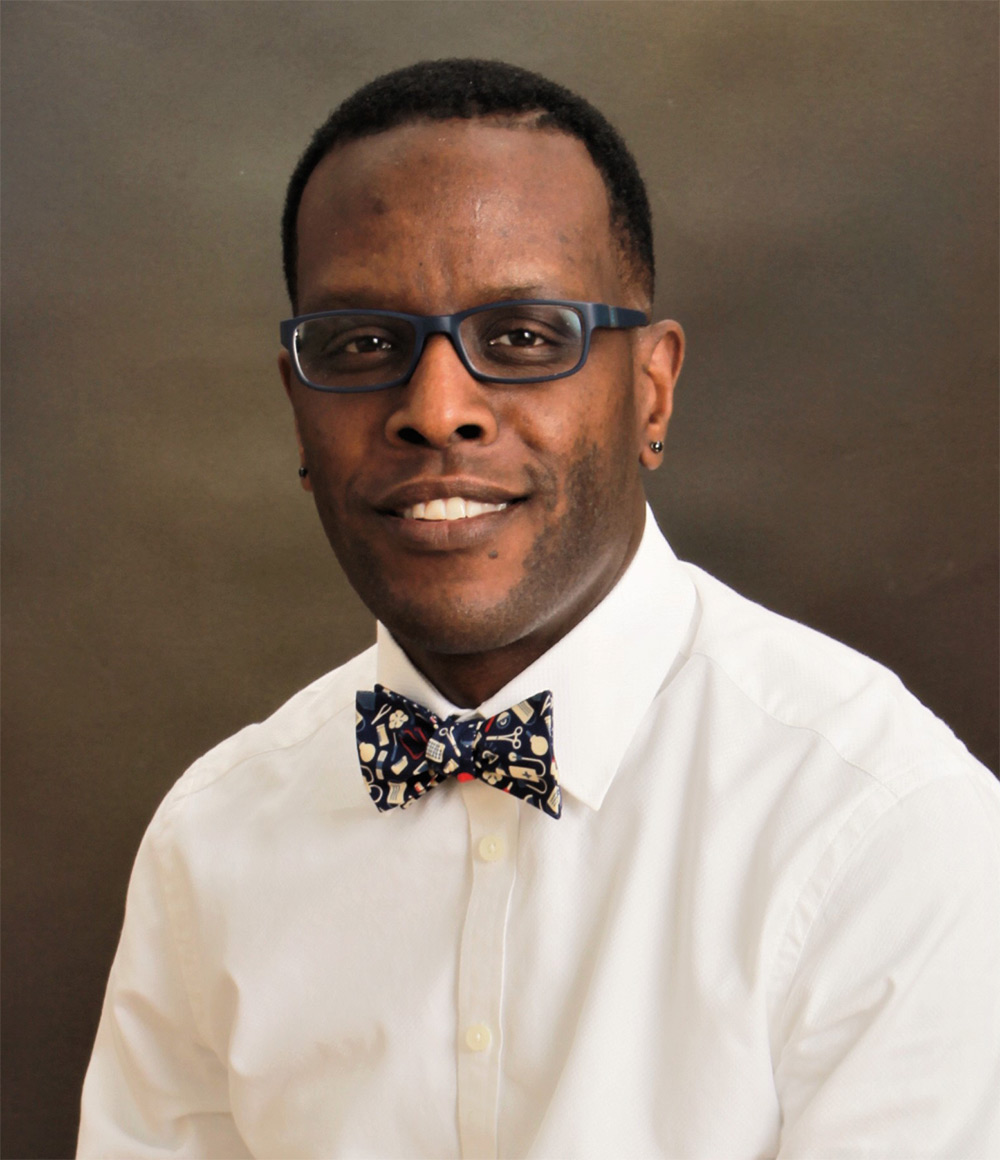
Bucknell appreciates the many alumni, parents, friends and staff who have included the University in their estate, tax or financial planning.
The gifts of Bertrand Society members strengthen every facet of the University.
Richard Wible
Jennine Steinberg Solomon ’11 and Andrew Solomon ’12
John Hoadley ’72 and Beth Fuchs
Lewis Ricci ’79 and Maggie Philleo Ricci ’79
Stuart Coyne ’48
Anonymous
Esther Herrington Wheeler ’44
Isabell Beers McConnell ’53, P’81, G’13
Spencer Bruno ’54, G’09
Clair Wheeler
Elizabeth Webber
Donald Westcott ’64, P’96
Dorothea Bohling Snyder ’52
Eleanor Leiper Williams ’50, P’76
Robert Woolhouse ’51
Lois Henneberger ’43
Richard Ellis
Lynn Harer Frazier ’49, P’80, ’82
Marilyn Gardner ’53
Lorna Hulings Gravell ’52
Three Anonymous Members
Richard Wible
Jennine Steinberg Solomon ’11 and Andrew Solomon ’12
John Hoadley ’72 and Beth Fuchs
Lewis Ricci ’79 and Maggie Philleo Ricci ’79
Stuart Coyne ’48
Anonymous
We celebrate the legacy gifts made by members no longer with us:
Esther Herrington Wheeler ’44
Isabell Beers McConnell ’53, P’81, G’13
Spencer Bruno ’54, G’09
Clair Wheeler
Elizabeth Webber
Donald Westcott ’64, P’96
Dorothea Bohling Snyder ’52
Eleanor Leiper Williams ’50, P’76
Robert Woolhouse ’51
Lois Henneberger ’43
Richard Ellis
Lynn Harer Frazier ’49, P’80, ’82
Marilyn Gardner ’53
Lorna Hulings Gravell ’52
Three Anonymous Members
But in his role as a Secret Service special agent protecting Presidents Bill Clinton and George W. Bush — a job where anything less than a 100% success rate was a catastrophic failure — these trips weren’t exactly vacations.
Agnelli served on the presidential protective detail from 1997 until 2002 — part of a 25-year career with the Secret Service. But for every Serengeti safari with Clinton or Daytona 500 with Bush, there were a hundred moments too dull for any scrapbook.
“People ask me what it’s like, and I say, ‘Put on your best suit. Go out and run around for an hour — get yourself real sweaty — and then stand in the rain, next to that door outside,” Agnelli says. “That’s what a lot of my days were like: freezing, standing outside in a place like Poland or Russia, thinking, ‘I’m going to die. It’s so cold.’ ”
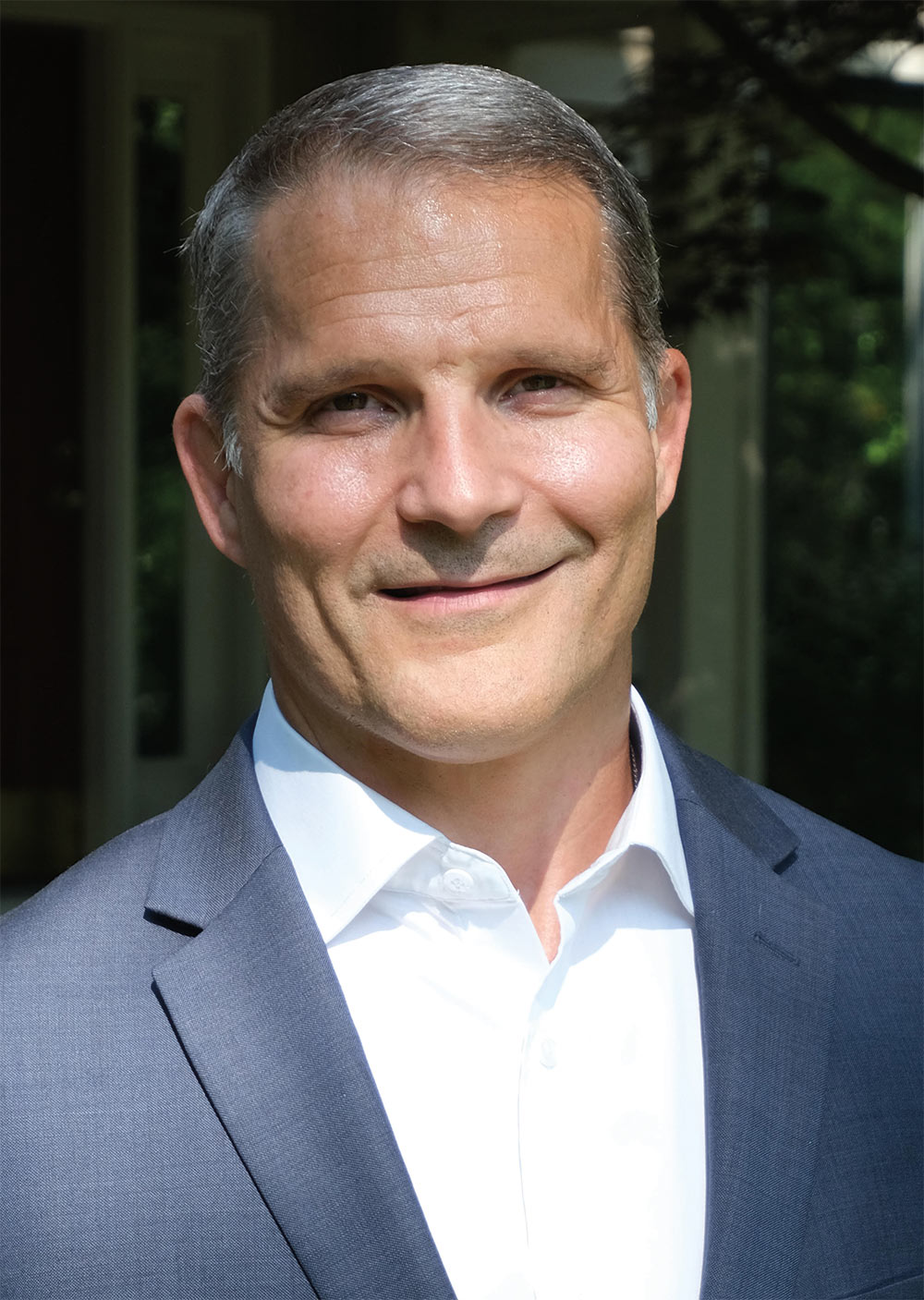
An innocent man convicted of capital murder, a tenacious attorney committed to reversing the sentence and a key piece of missing evidence that would lead to exoneration — anyone familiar with crime dramas might point to these as the ingredients of a sensational thriller. But the story of the eight-year battle Brian Stolarz ’95 fought to reverse the death-row conviction of Alfred Dewayne Brown is anything but fiction. It’s one of eight true stories featured in Netflix’s The Innocence Files, a documentary series released in April that shines a spotlight on miscarriages of justice.
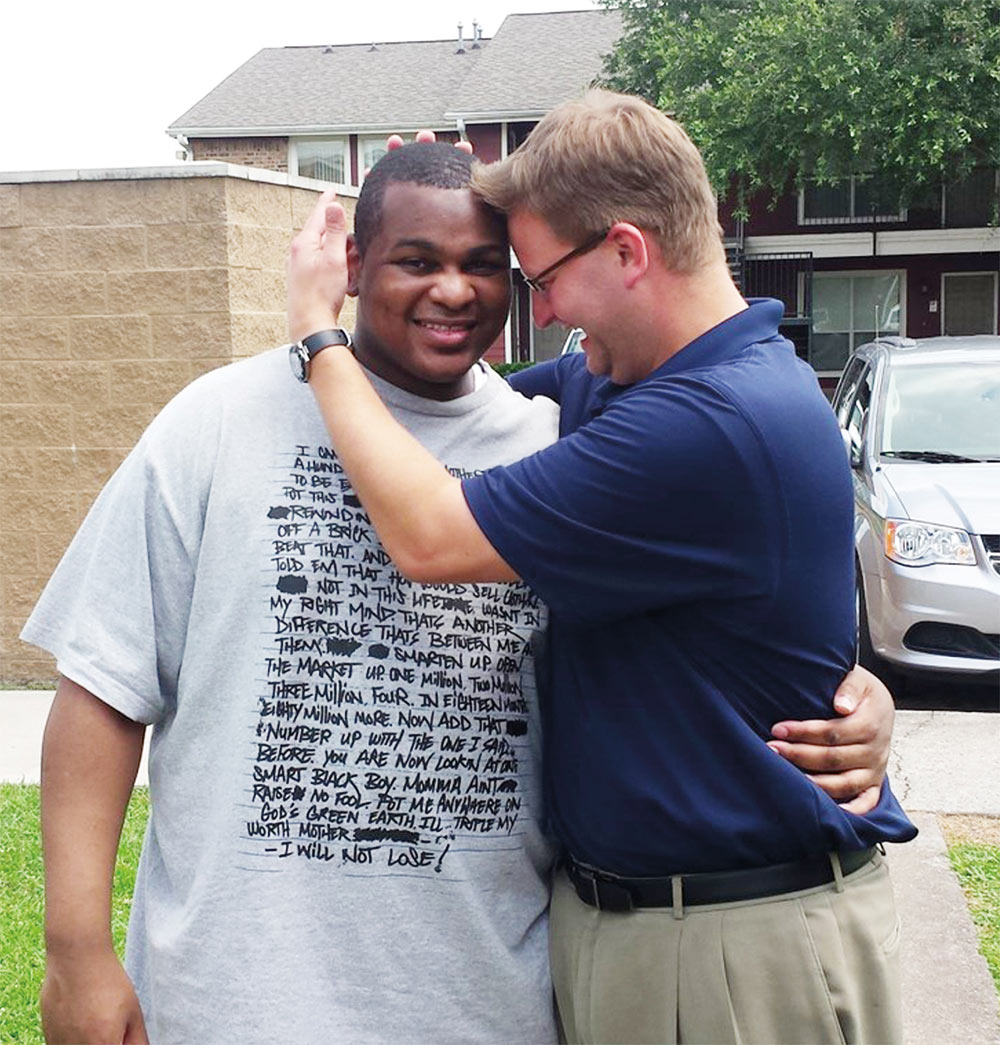
In fall 2001, I was a first-year student at Bucknell. One fateful morning, a classmate ran into my room and woke my roommate and me at around 9 a.m. “The twin towers are burning, and a plane flew into them!” he screamed. We rushed out into the floor’s common space and watched the scene on TV. The reality began to sink in. We were shocked. Tears fell.
By the end of my senior year at Bucknell, I received my degree in management and finished the pre-health requirements. Feeling more like a self-described generalist, the reality of the specialized economy was starting to hit me. A thirst for academics and adventure won out, and I pursued a master’s in public policy and management at the University of Konstanz in Germany.

During her three months on Rusinga Island in Western Kenya, the religious studies major helped local leaders secure funding for a health clinic to battle the HIV epidemic. Clarke-Schwelm observed the social stigma against HIV-positive people that disproportionately disadvantaged women. She also saw the impact that strong community leaders can have on addressing inequities.
For several years after graduation, she worked in public-health clinics in Honduras, Panama and Kenya to improve health care access and the social status of women. “Women can’t get jobs, run for office or be leaders in their communities if they’re sick or caring for people who are sick,” she says. “We have to address public health if we want the most marginalized people on this planet to have a shot at not only gaining equality but also pursuing the lives they want to live.”
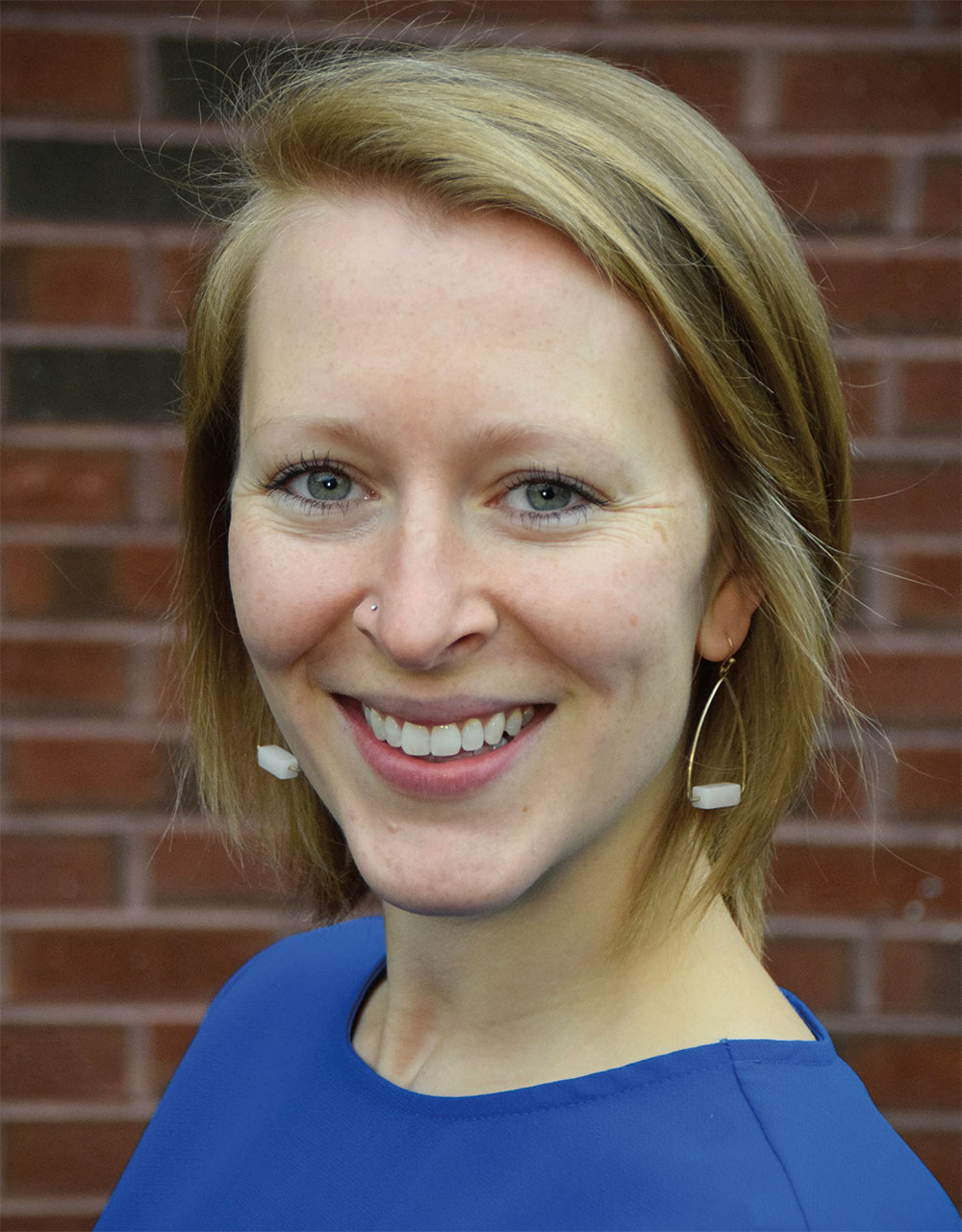
As the director of the Lynn Museum/Lynn Arts in Lynn, Mass., Doneeca Thurston ’12’s work is tied inextricably to the community around her — not only to its colonial past but to the narratives that reverberate in the neighborhood today.
“Lynn has evolved so much over time, and some of those more recent histories are missing from our permanent collection,” Thurston says. “Some of the people who live in our neighborhood are not visible in this space, so we use our exhibitions to celebrate the histories of the people who are here today — to become more of an ally and supporter in the community.”
That commitment to community not only includes work developing exhibitions such as Industry & Craft: People at Work in Lynn and Untold Stories: A History of Black People in Lynn. It extends to her part-time docent staff.
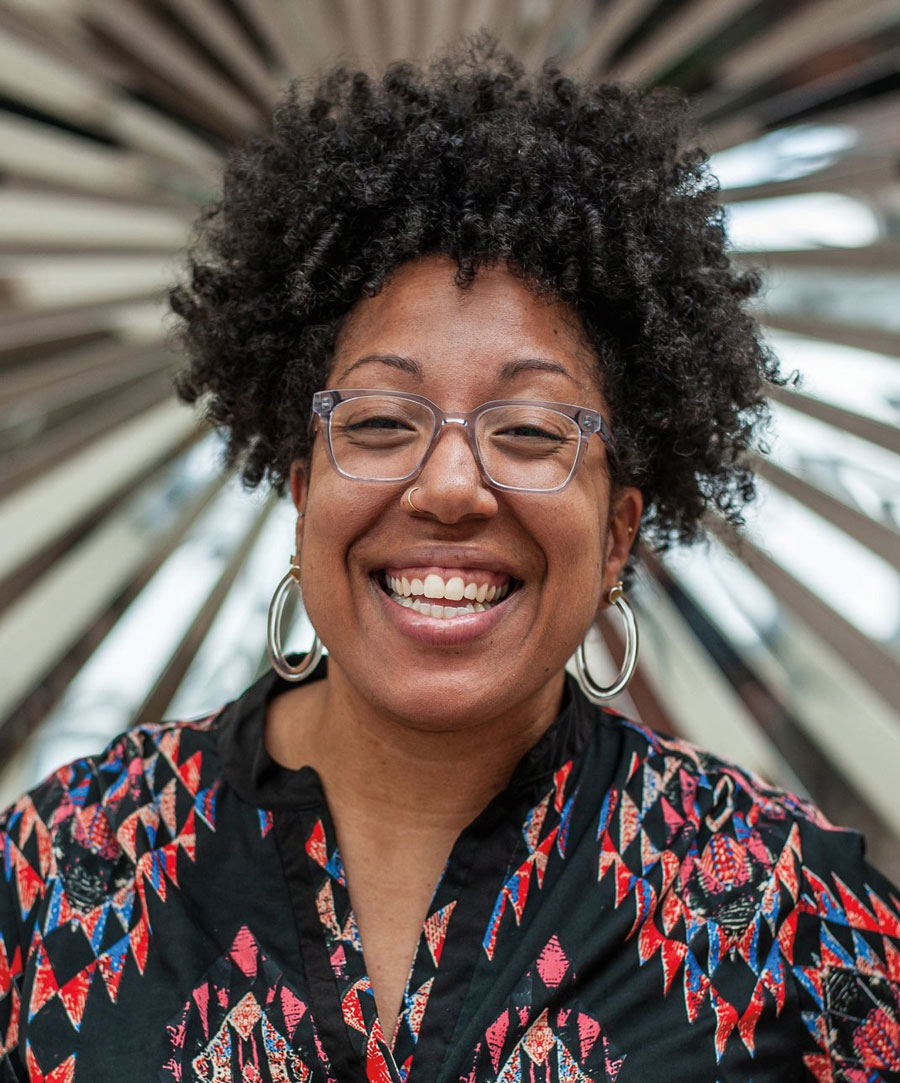
When Matt Mosquera ’14 stepped into Charles Kim’s lab as a Bucknell sophomore and told the mechanical engineering professor he wanted to build a robot resembling an octopus’ tentacle, he didn’t know it would lead to a career creating lifesaving drugs.
“I just wanted to do something that hadn’t been done before,” says Mosquera, who recently earned a Ph.D. in mechanical engineering from Cornell University and began work this summer as a research scientist for Teva Pharmaceuticals.
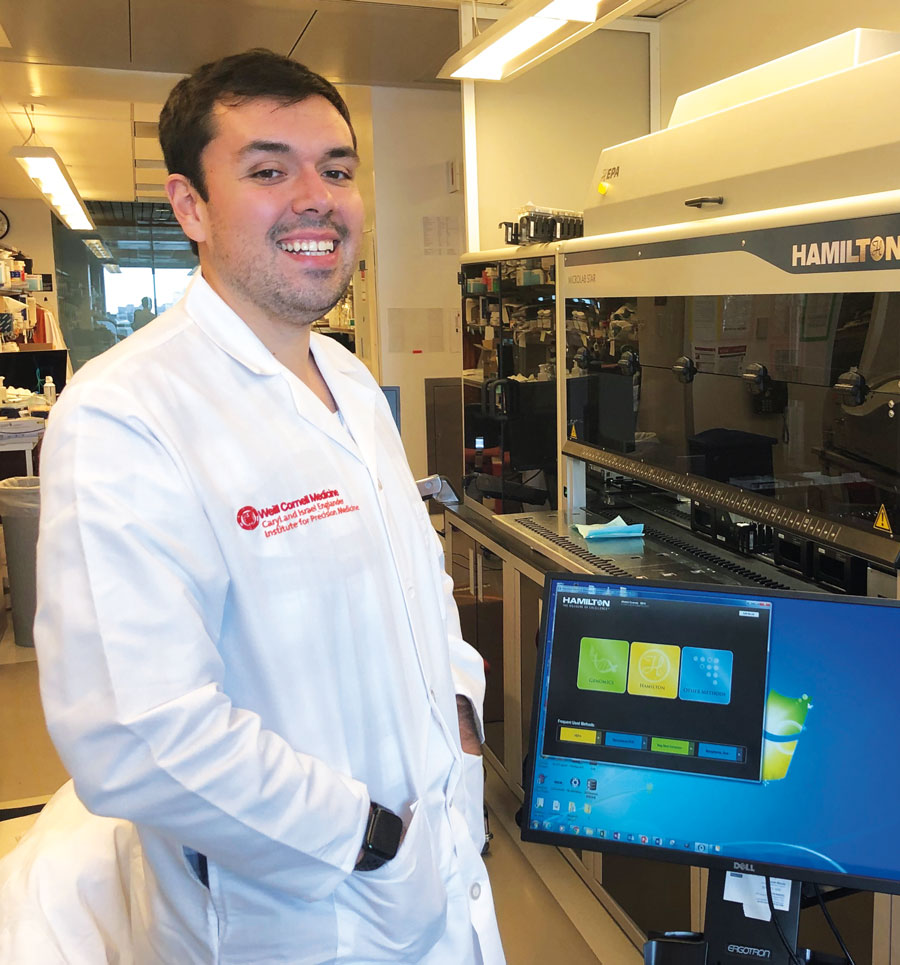
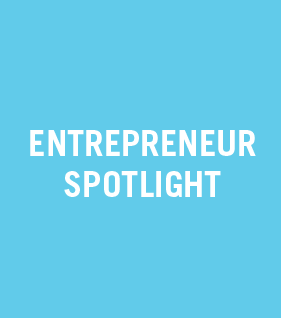
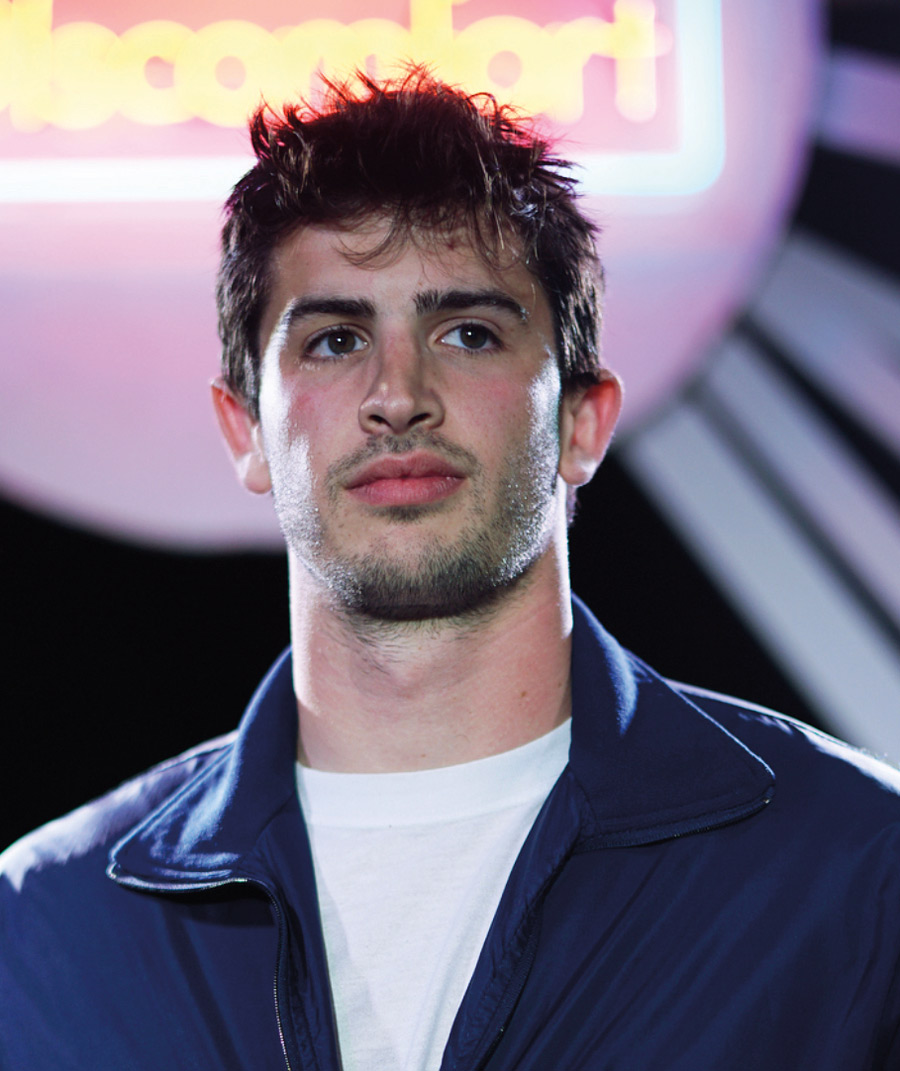
Austin Kevitch ’14 isn’t one to sit still. In fewer than six years, the serial entrepreneur has participated in the design and development of four successful apps: Scholly, Brighten, Phoneless and Moodboost. Now he’s at it again.
Although currently in negotiations to sell Brighten Labs — the umbrella company for Brighten, Phoneless and Moodboost — Kevitch is already hard at work with three co-founders on a new venture: The Lox Club, a private, membership-based dating app that sprang from Kevitch’s gentle ribbing of his mother.

“My mom is single and has had a series of nightmare experiences with dating apps, so during the COVID crisis, I half-jokingly created a dating app to cater to ‘Jews with ridiculously high standards,’ ” he explains. Much to Kevitch’s surprise, a couple thousand people signed up, so he and his partners began refining the app, which launched in July.
Charles Menzies P’77, G’04, G’07, June 7, Brentwood, Tenn.
Mary Frederick Schoff, April 3, Worcester, Pa.
Margaret Fatzinger Corcoran P’84, May 4, Catasauqua, Pa.
Marshall Fogerty, Jan. 15, 2019, Davidson, N.C.
Warren Lee M’49, P’74, P’77, April 17, Tampa, Fla.
Mary Fenimore Metzler, April 23, Cherry Hill, N.J.
Betty Kreitzburg Westplate, June 19, Kenosha, Wisc.
Ray Shook P’72, P’73, April 29, St. Petersburg, Fla.
Shirley Geiger Slorance, June 6, Manasquan, N.J.
Henry Struck, June 14, Pinehurst, N.C.
Edgar Feingold, April 6, Baltimore, Md.
John Litus, May 2, Yardley, Pa.
George Tracy, Feb. 16, Beaufort, S.C.
Jack Roush, May 29, Sunbury, Pa.
Donald Deakyne, May 27, Minnetonka, Minn.
Edythe “Dee” Ferns Gingerich, June 25, Cummaquid, Mass.
Lorna Hulings Gravell, April 29, Fairfax, Va.
Liz Hudson Dugas, May 15, Ocala, Fla.
Don Dobbs, June 11, Lewisburg, Pa.
Judith Esmay, April 28, Hanover, N.H.
Joan Olcott King, April 19, Sautee Nacoochee, Ga.
Fanny Rich Mapes, June 11, Lancaster, Pa.
Doris Erman Rochlin, May 18, Bethesda, Md.
Dick Skelton ’60, M’70, P’92, regarded as the architect of Bucknell’s admissions marketing strategy, died Aug. 17 in Lewisburg.
A member of ROTC and a business administration major at Bucknell, Skelton served in the Army after graduation. He joined Bucknell in 1963 at the urging of Dean of Admissions Fitz Walling ’46, P’79, G’05, G’11, according to former Associate Vice President for Enrollment Mark Davies ’74, P’04, P’11.
Skelton was “one of the first at Bucknell to think about marketing, putting staff out on the road to visit high schools and building relationships with college counselors,” said Davies. “He developed a national reputation as being fair-minded, and he recognized the importance of diversity. He was a strong leader who always sought input from those he worked with.”
Watch as Professor Ron Ziemian, civil & environmental engineering, tells the story of an iconic building in New York City.
Wednesday, Nov. 4, noon EST
What do you miss most about Bucknell?
FOLLOW US ON FACEBOOK TO SUBMIT YOUR ANSWER
 See you at Reunion!
See you at Reunion!
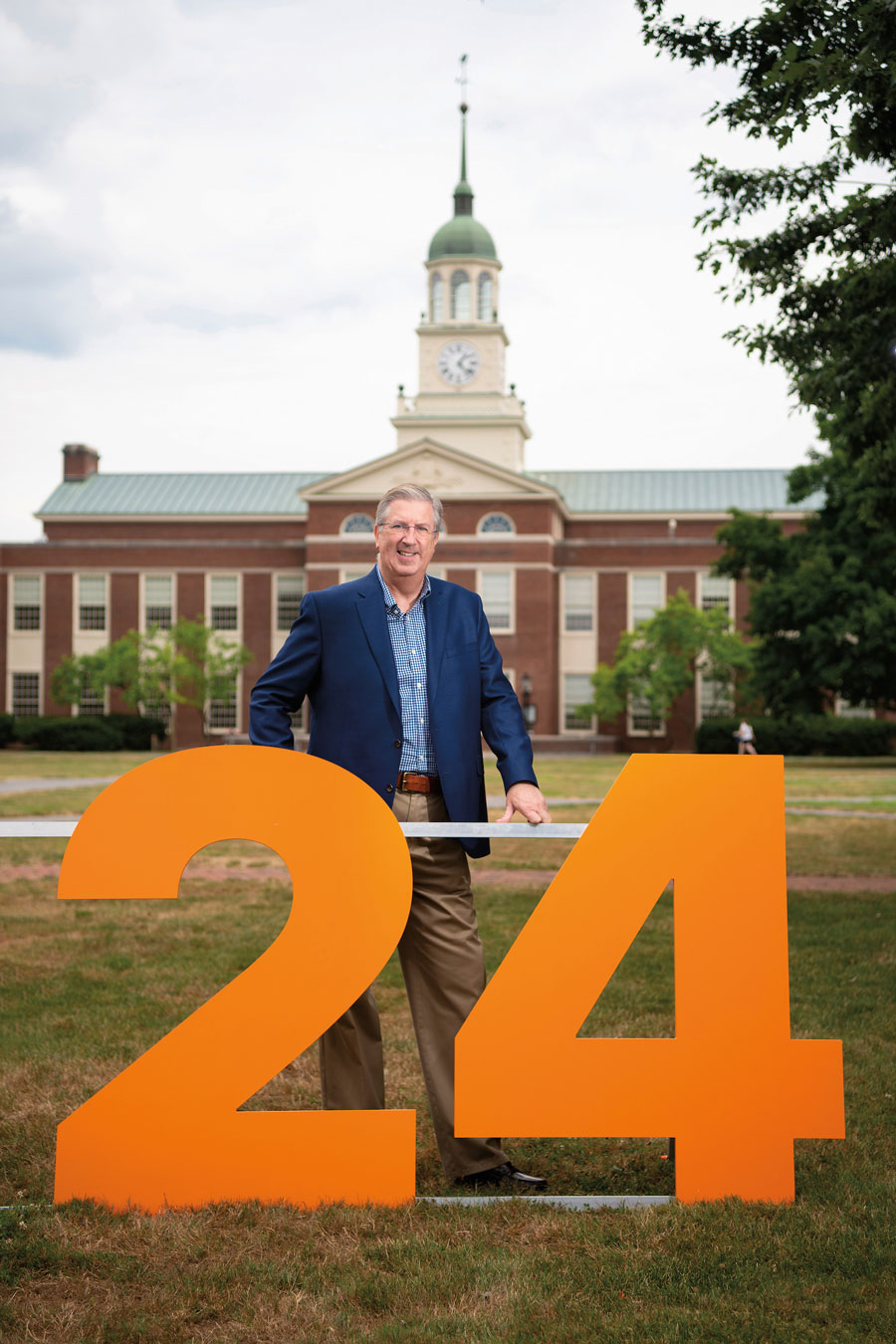
The arrival of COVID-19-imposed quarantines this spring offered time to experiment with new art forms. A creative option developed by and for Bucknellians (and others) will allow you to play the gamelan — virtually.
The gamelan is a traditional Indonesian orchestra comprising mostly percussion instruments, including metallophones, chimes, gongs and drums. In summer 2018, Abby Dolan ’19 created the virtual gamelan as a Digital Scholarship Summer Research Fellow to help new players become familiar with the instruments outside the classroom.
Students in Bucknell’s Gamelan Ensemble, of which Dolan was a member, normally play together on the two-dozen intricately carved red-and-gold instruments housed on campus. But after returning home this spring due to the COVID-19 pandemic, students kept up their skills through the virtual gamelan.
The tool includes five instrument applications for Windows and Mac OS X that you can download to your own computer. To play, tap the number and letter keys to ring and mute notes. This simulates the striking and dampening of metallophone keys.
“It’s inspiring to see a past student project become useful two years later, especially in a time of national crisis,” says Professor Bethany Collier, music, director of the Gamelan Ensemble. “It speaks not only to the utility of digital tools today but also to how important and relevant the work our undergraduate research students do really is.” — Brooke Thames

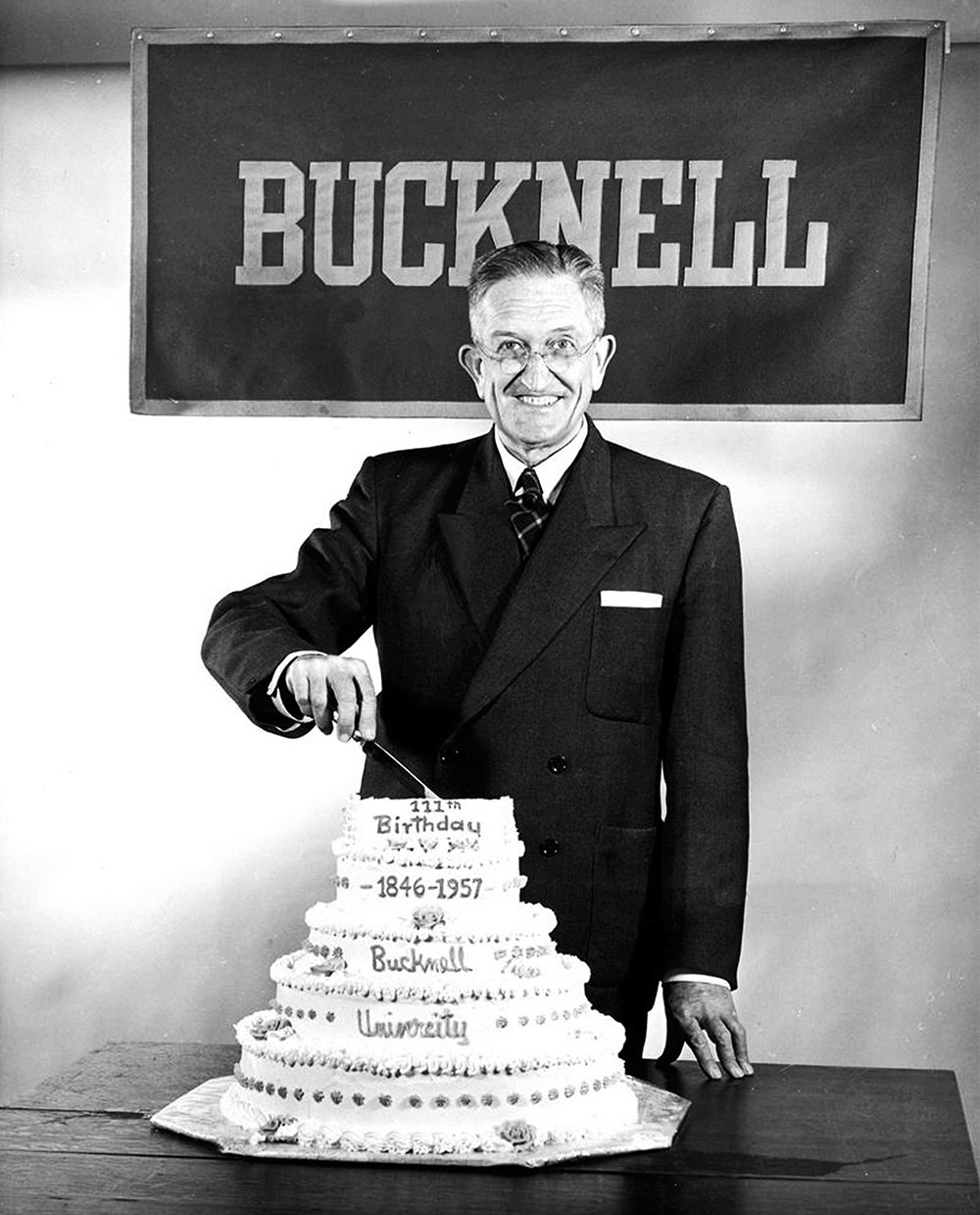

 Professor BARRY LONG first encountered his future focus in music as a teen attending summer festivals sponsored by the Central Pennsylvania Friends of Jazz. The Harrisburg native fell hard for jazz and bought three vinyl records one summer: Miles Davis’ A Tribute to Jack Johnson, Charlie Parker’s Volume 1 and Clifford Brown’s Memorial Album. The music department chair now directs the Bucknell Jazz Ensemble and curates the public performance series Jazz@Bucknell.
Professor BARRY LONG first encountered his future focus in music as a teen attending summer festivals sponsored by the Central Pennsylvania Friends of Jazz. The Harrisburg native fell hard for jazz and bought three vinyl records one summer: Miles Davis’ A Tribute to Jack Johnson, Charlie Parker’s Volume 1 and Clifford Brown’s Memorial Album. The music department chair now directs the Bucknell Jazz Ensemble and curates the public performance series Jazz@Bucknell. 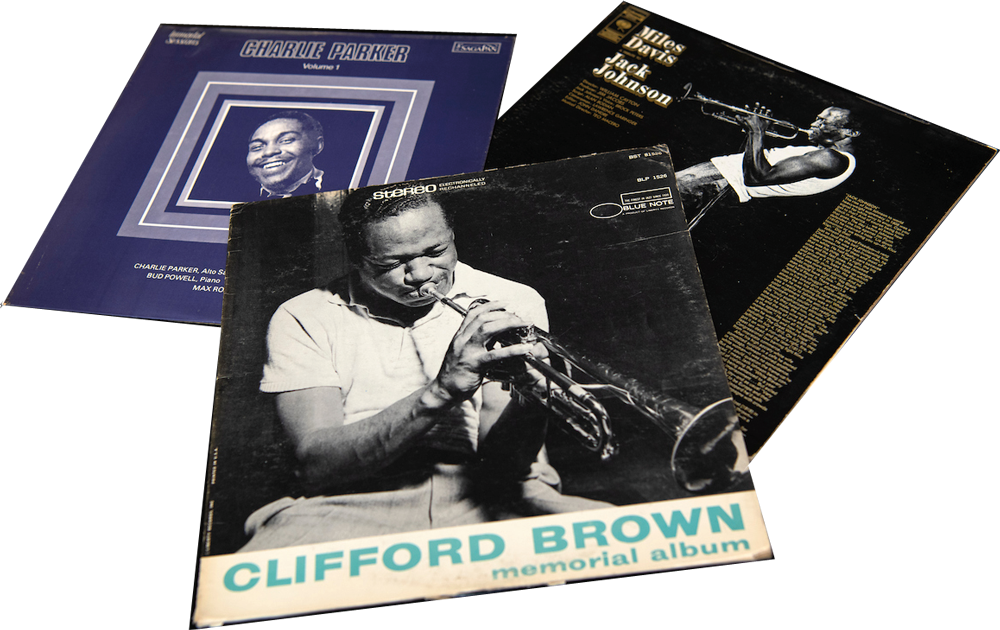

 Professor BARRY LONG first encountered his future focus in music as a teen attending summer festivals sponsored by the Central Pennsylvania Friends of Jazz. The Harrisburg native fell hard for jazz and bought three vinyl records one summer: Miles Davis’ A Tribute to Jack Johnson, Charlie Parker’s Volume 1 and Clifford Brown’s Memorial Album. The music department chair now directs the Bucknell Jazz Ensemble and curates the public performance series Jazz@Bucknell.
Professor BARRY LONG first encountered his future focus in music as a teen attending summer festivals sponsored by the Central Pennsylvania Friends of Jazz. The Harrisburg native fell hard for jazz and bought three vinyl records one summer: Miles Davis’ A Tribute to Jack Johnson, Charlie Parker’s Volume 1 and Clifford Brown’s Memorial Album. The music department chair now directs the Bucknell Jazz Ensemble and curates the public performance series Jazz@Bucknell. photograph by EMILY PAINE
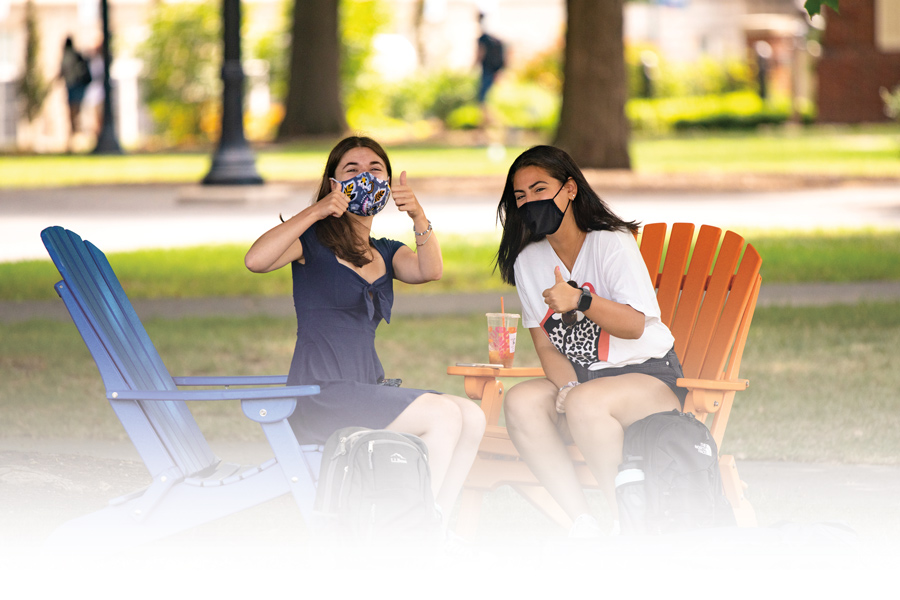
photograph by EMILY PAINE

